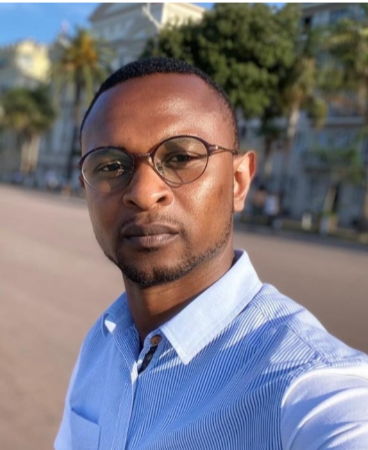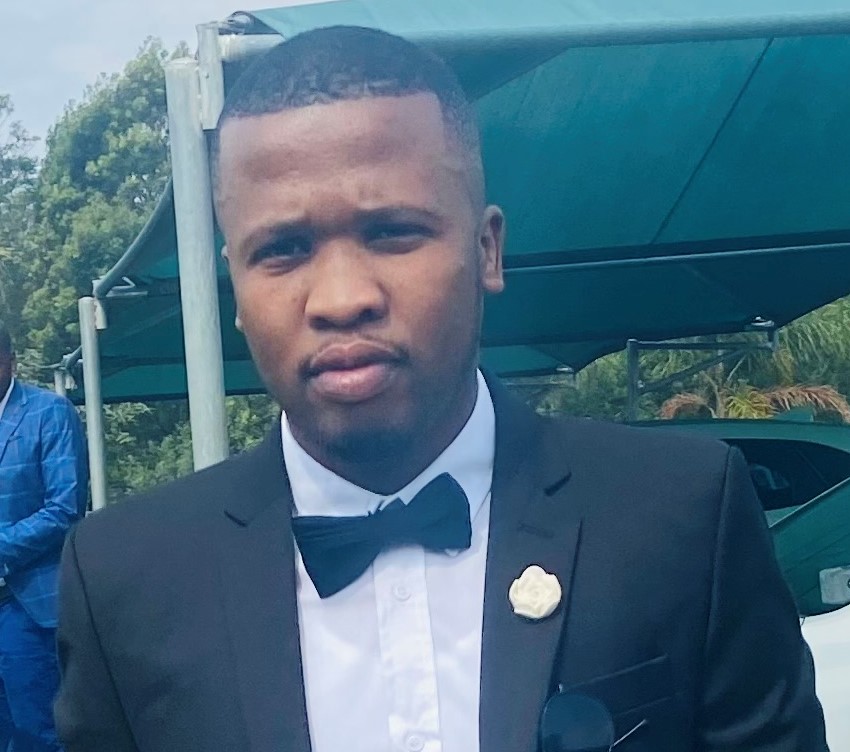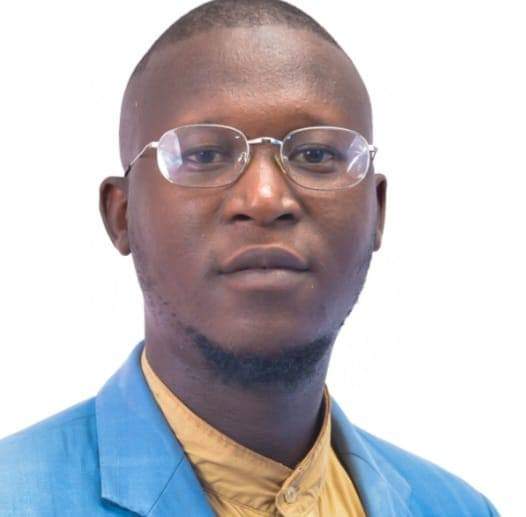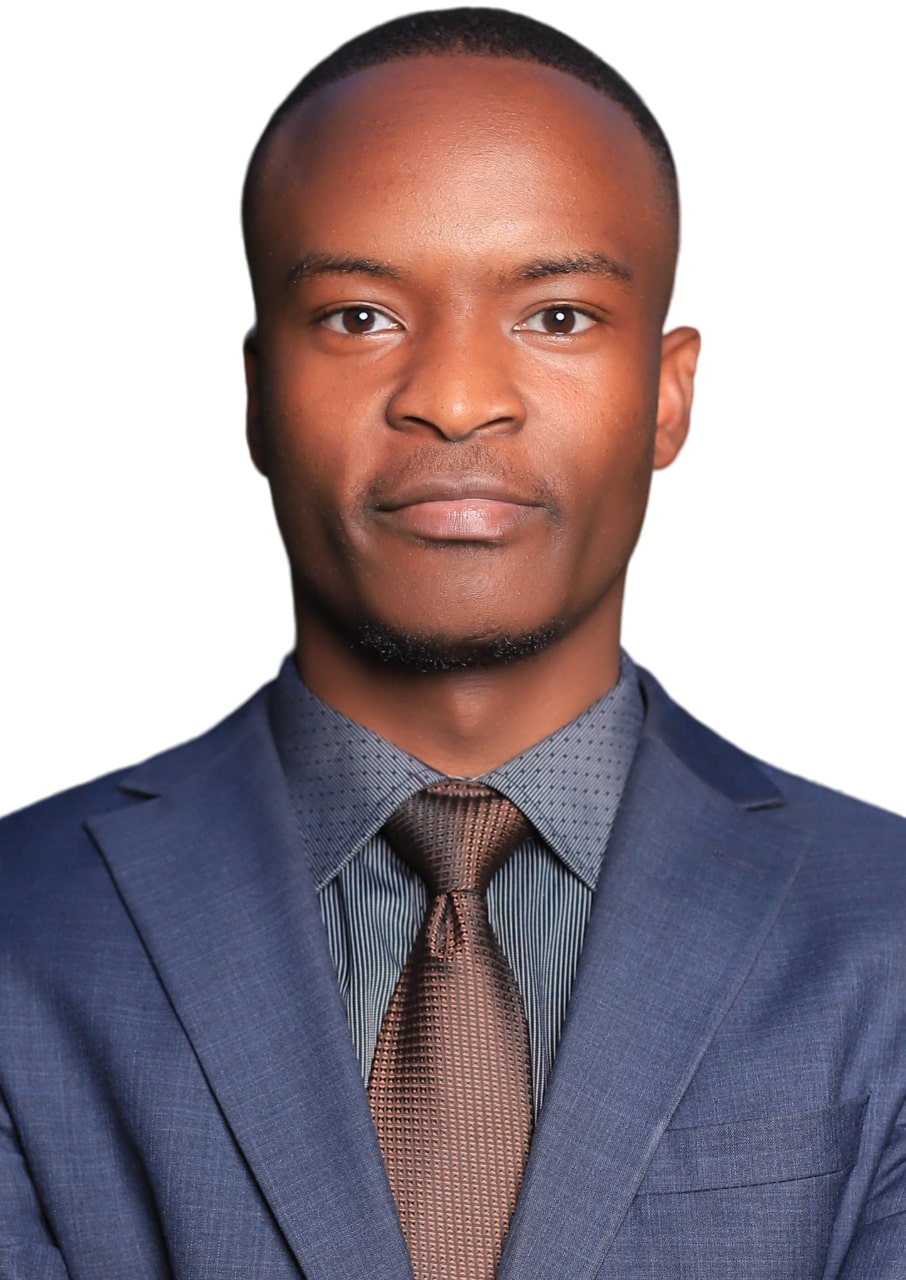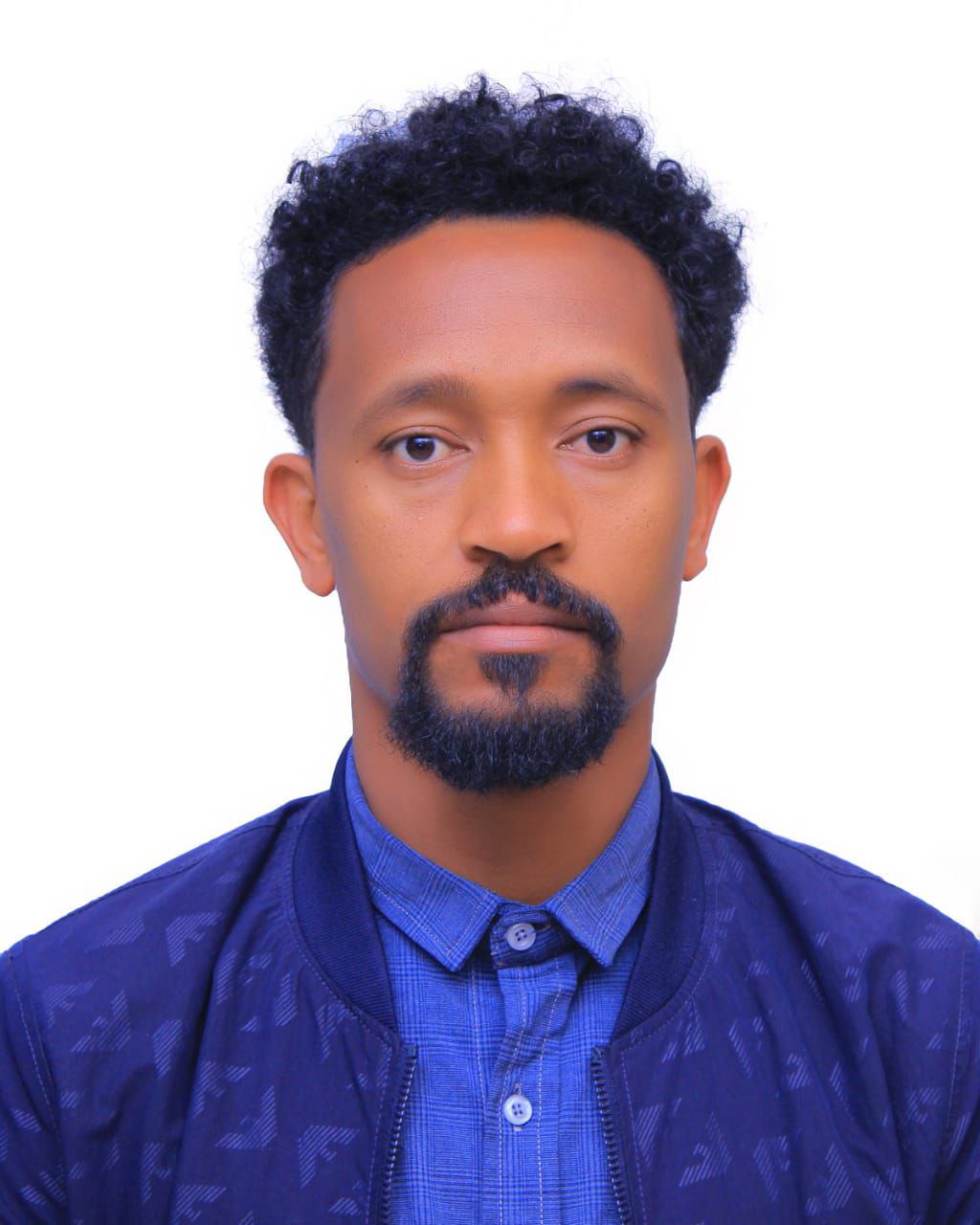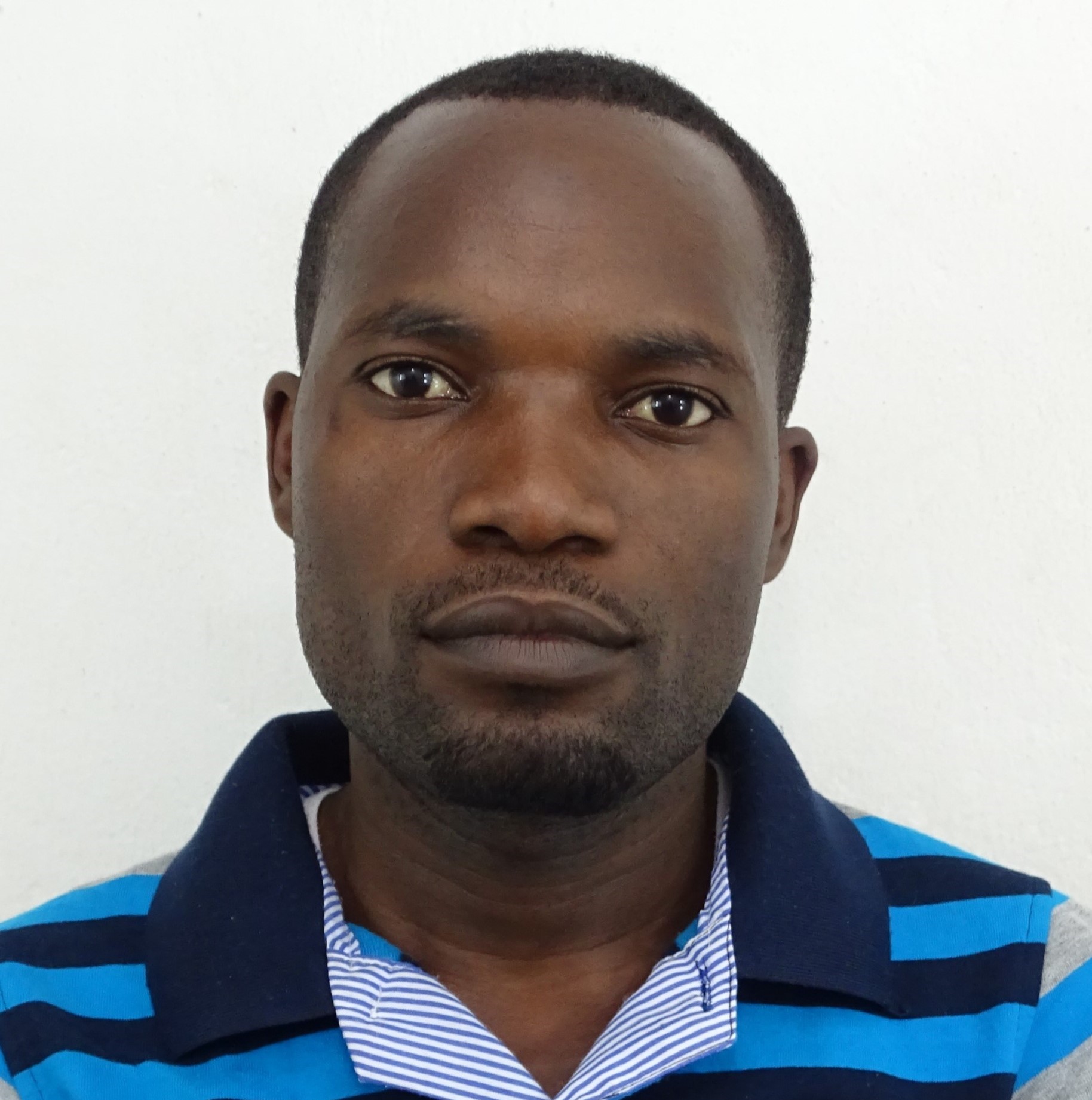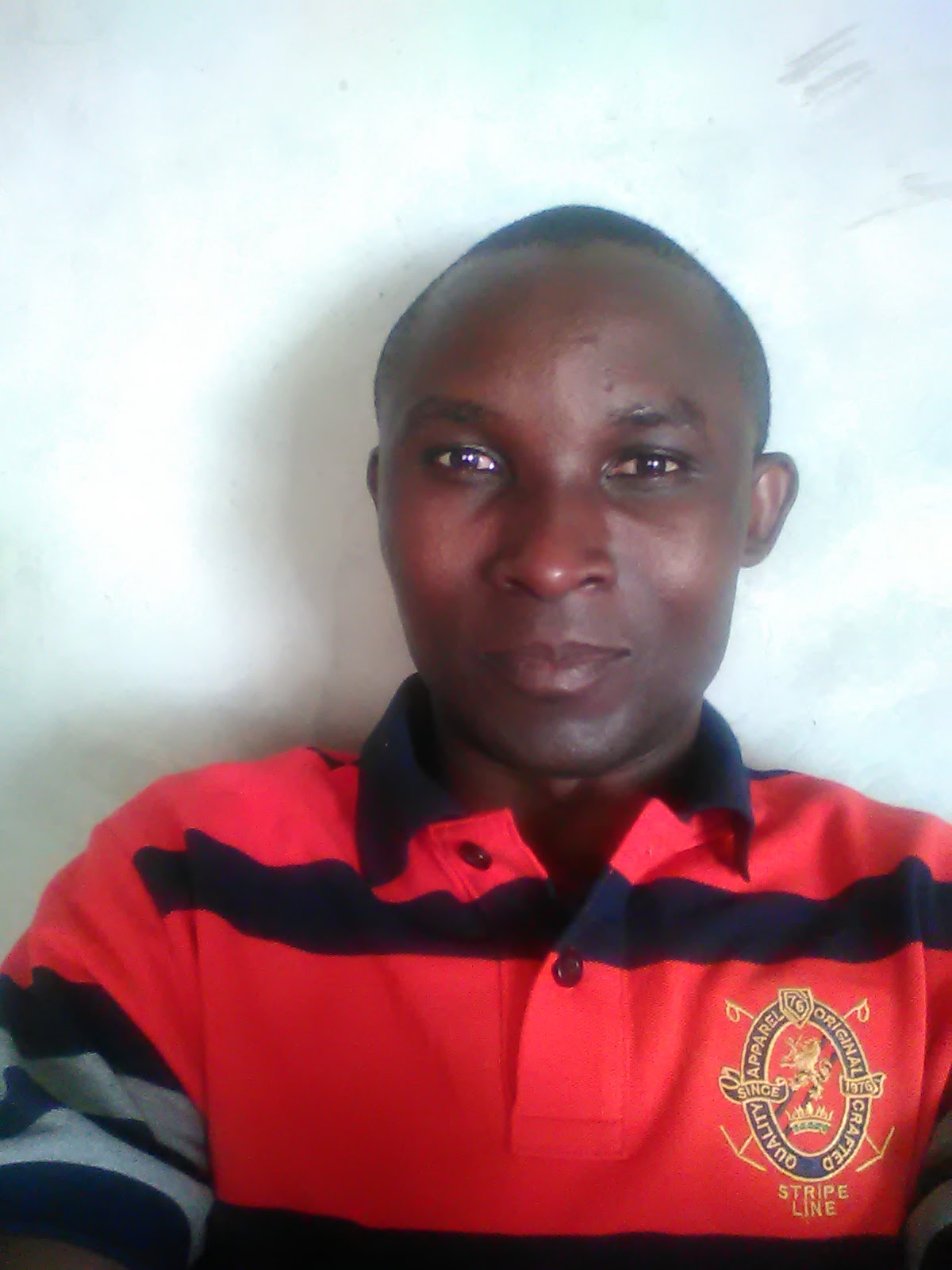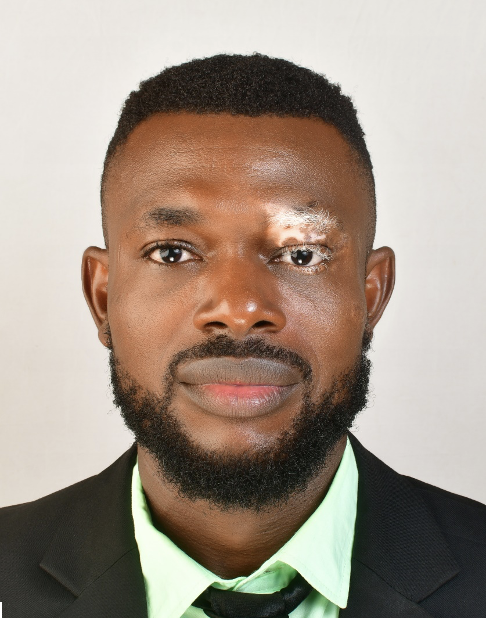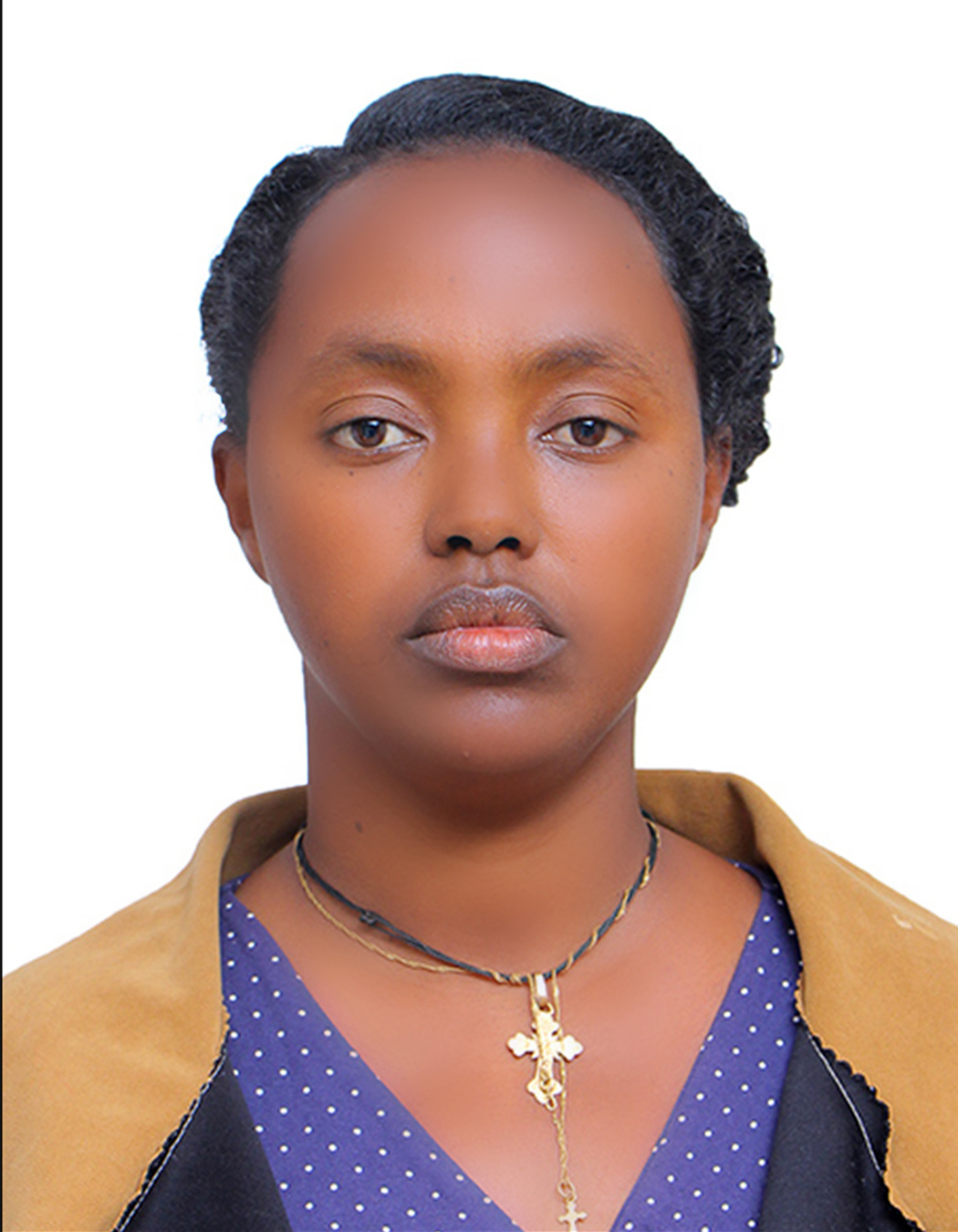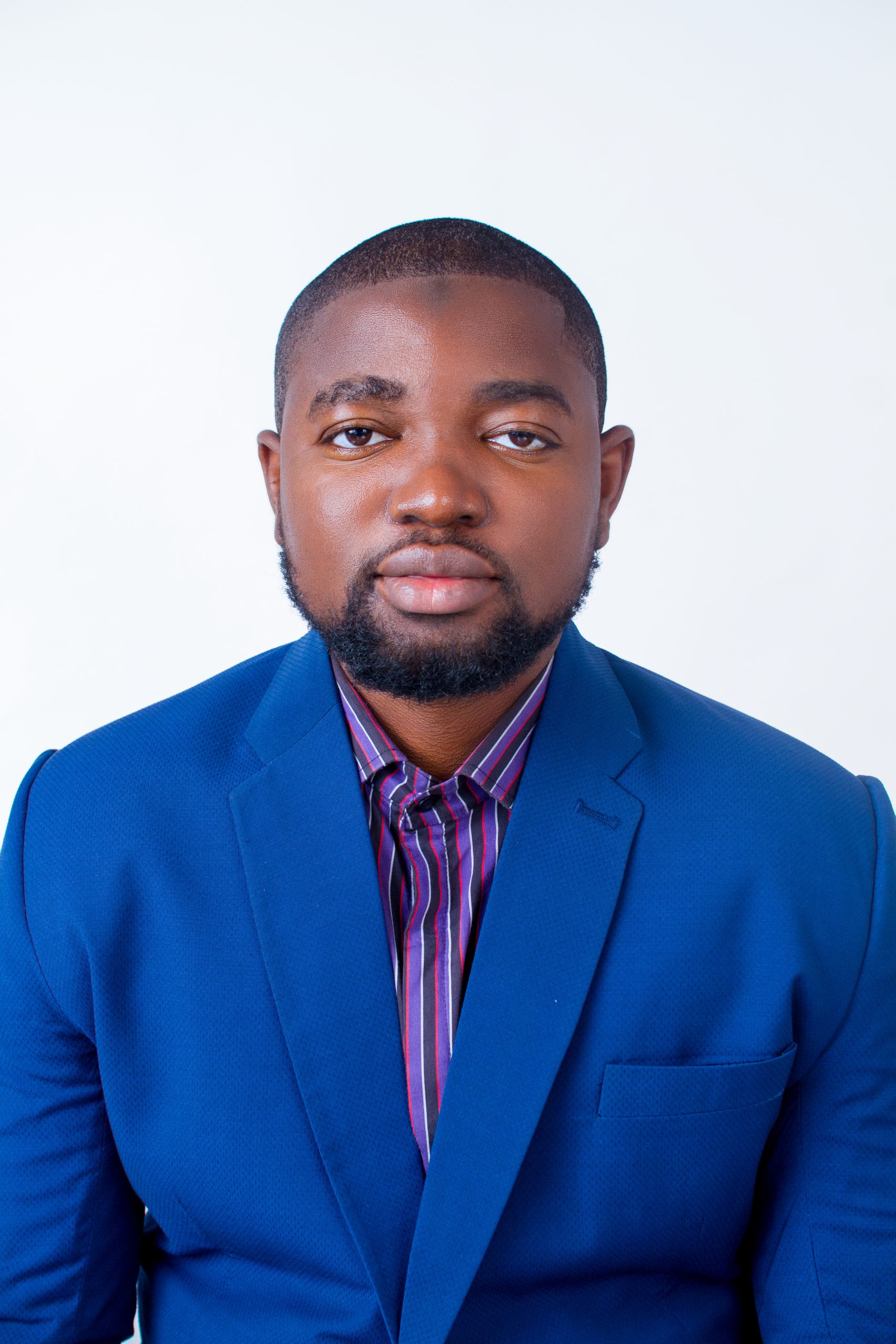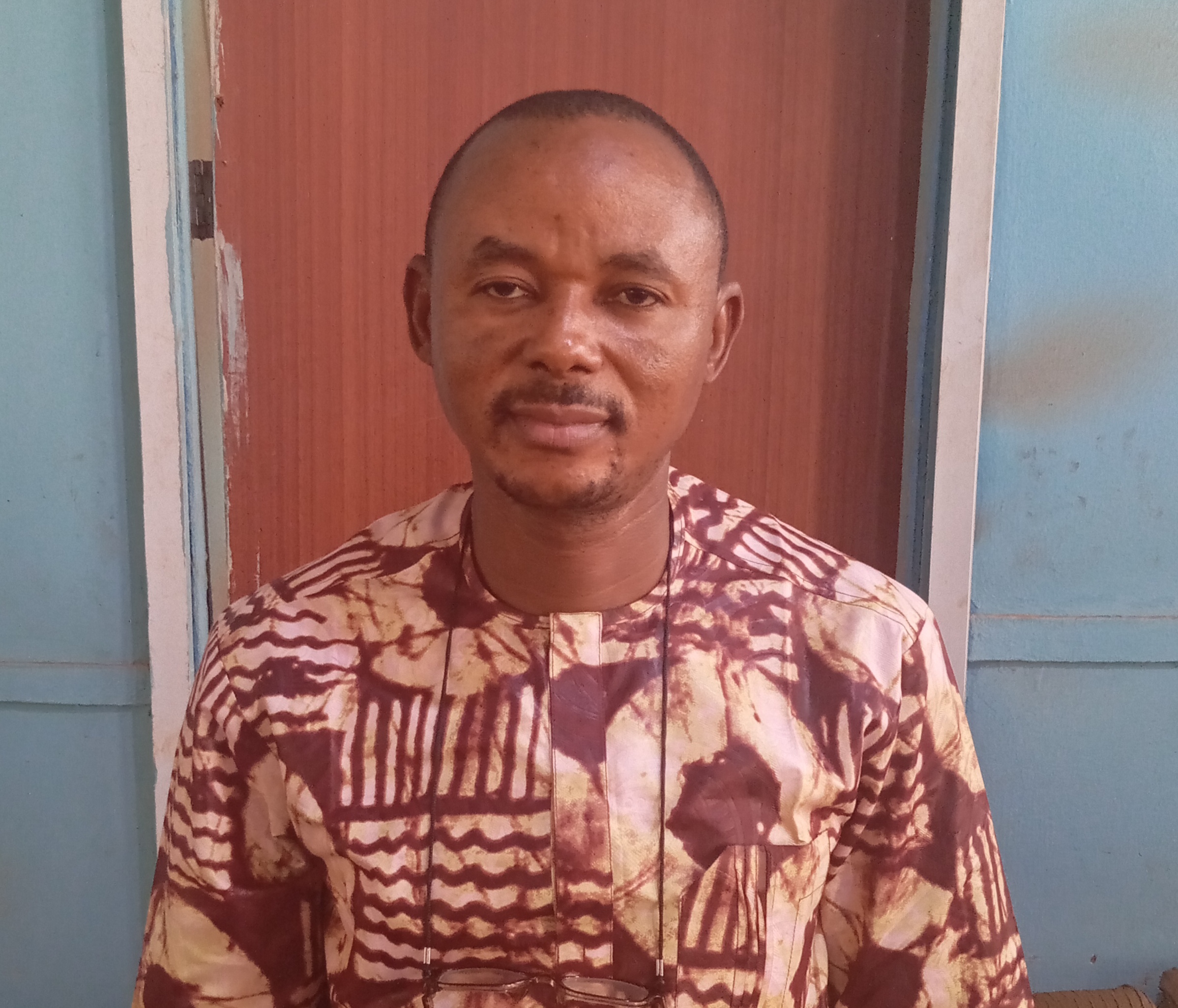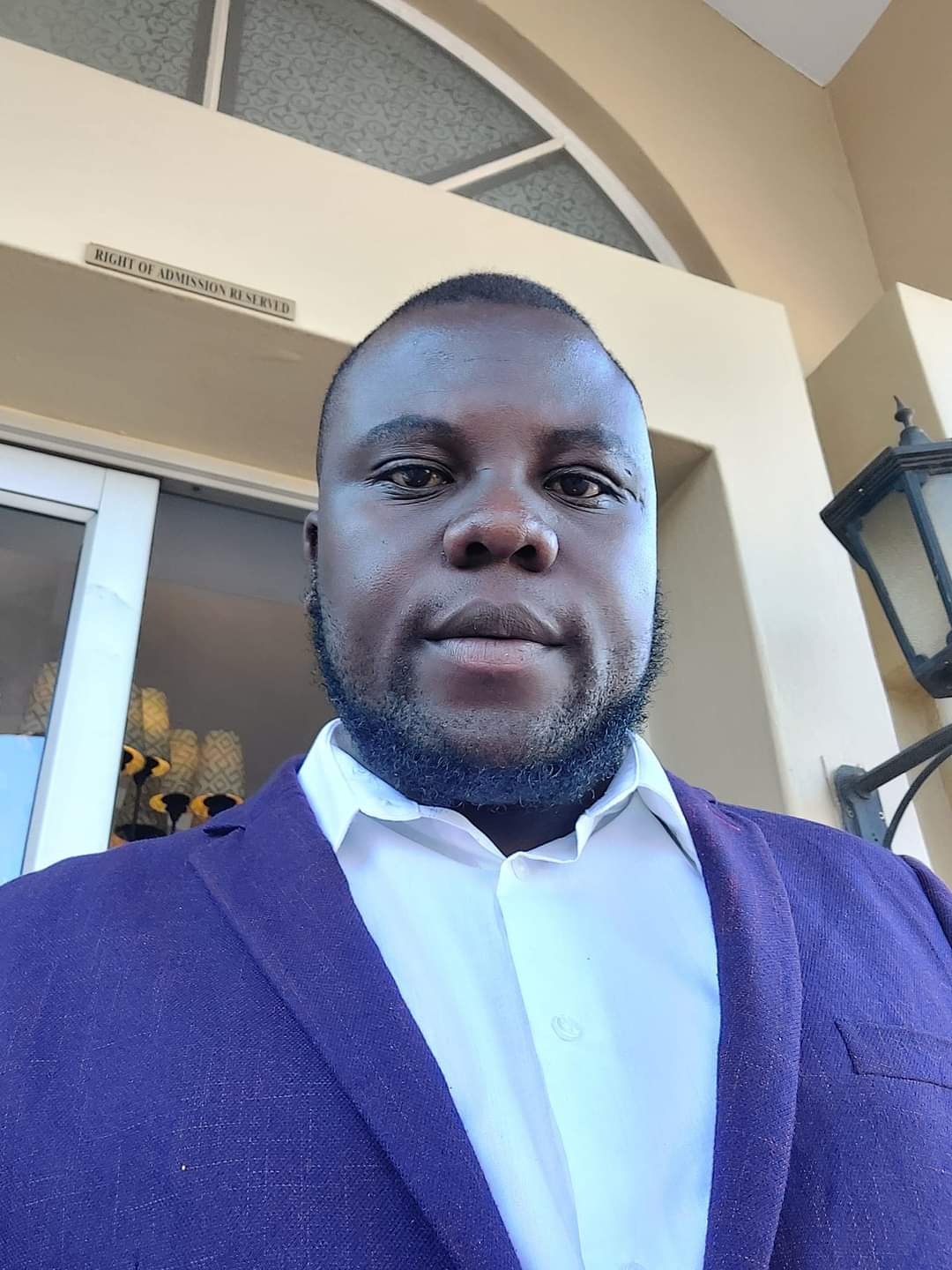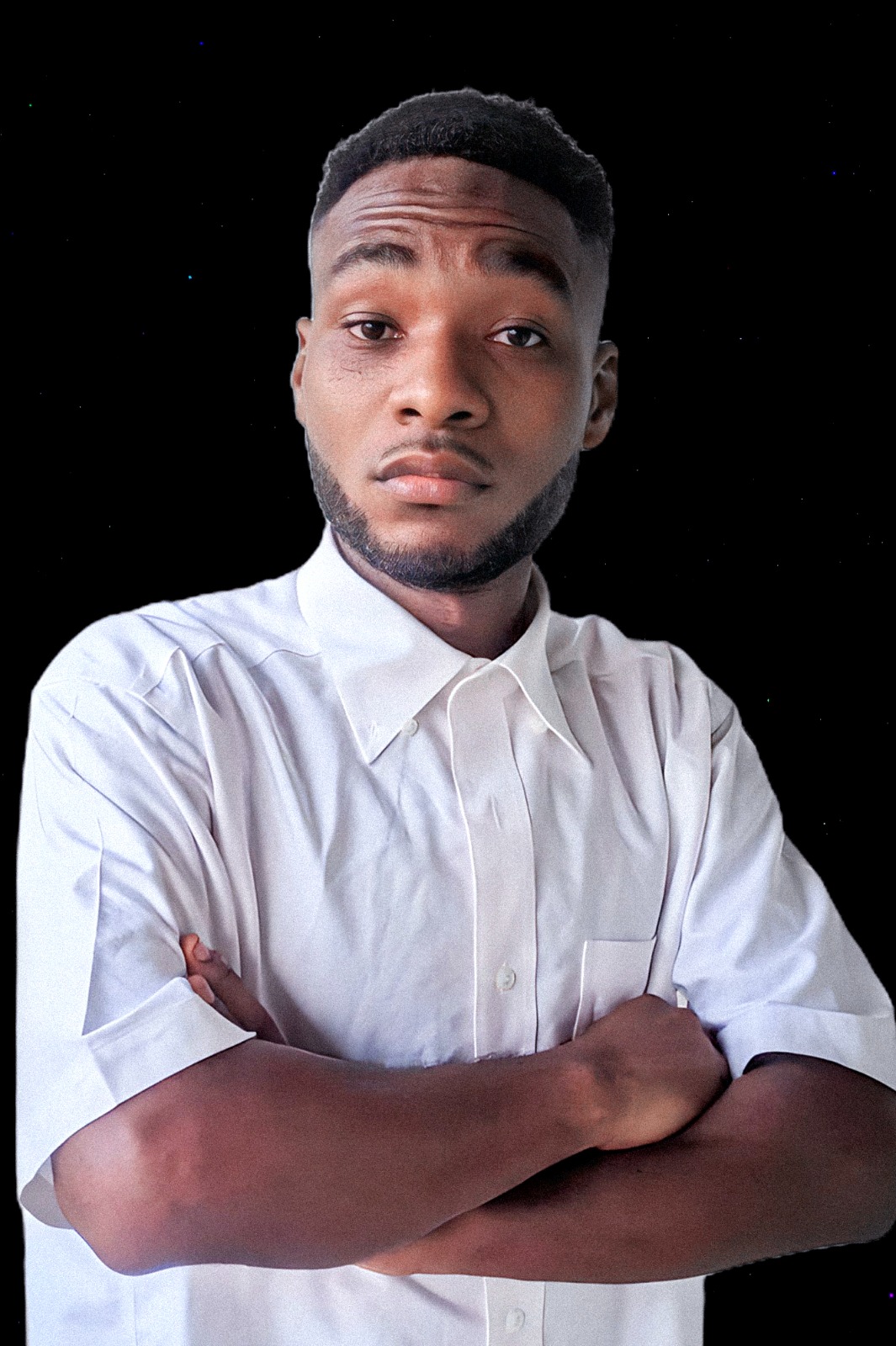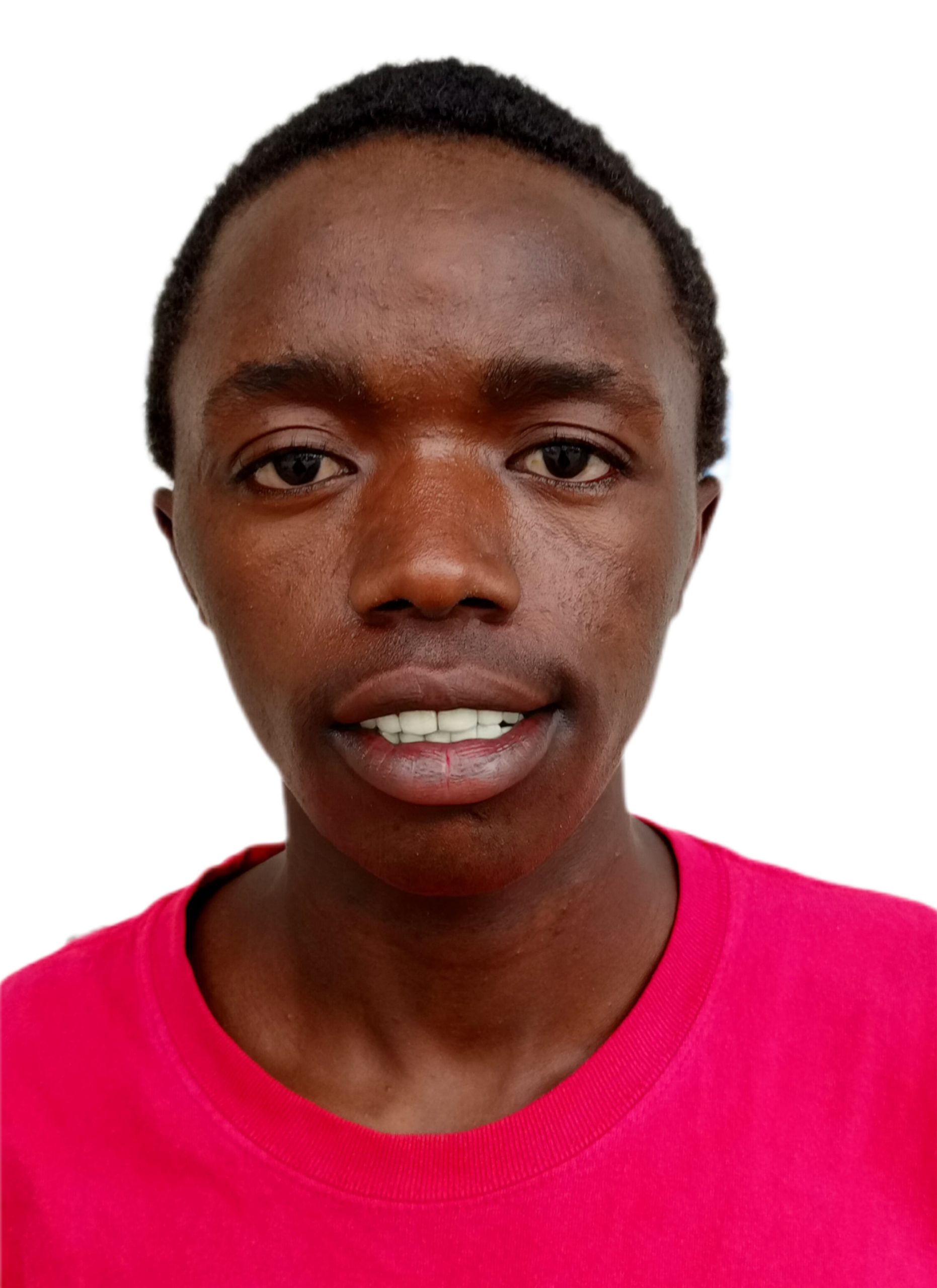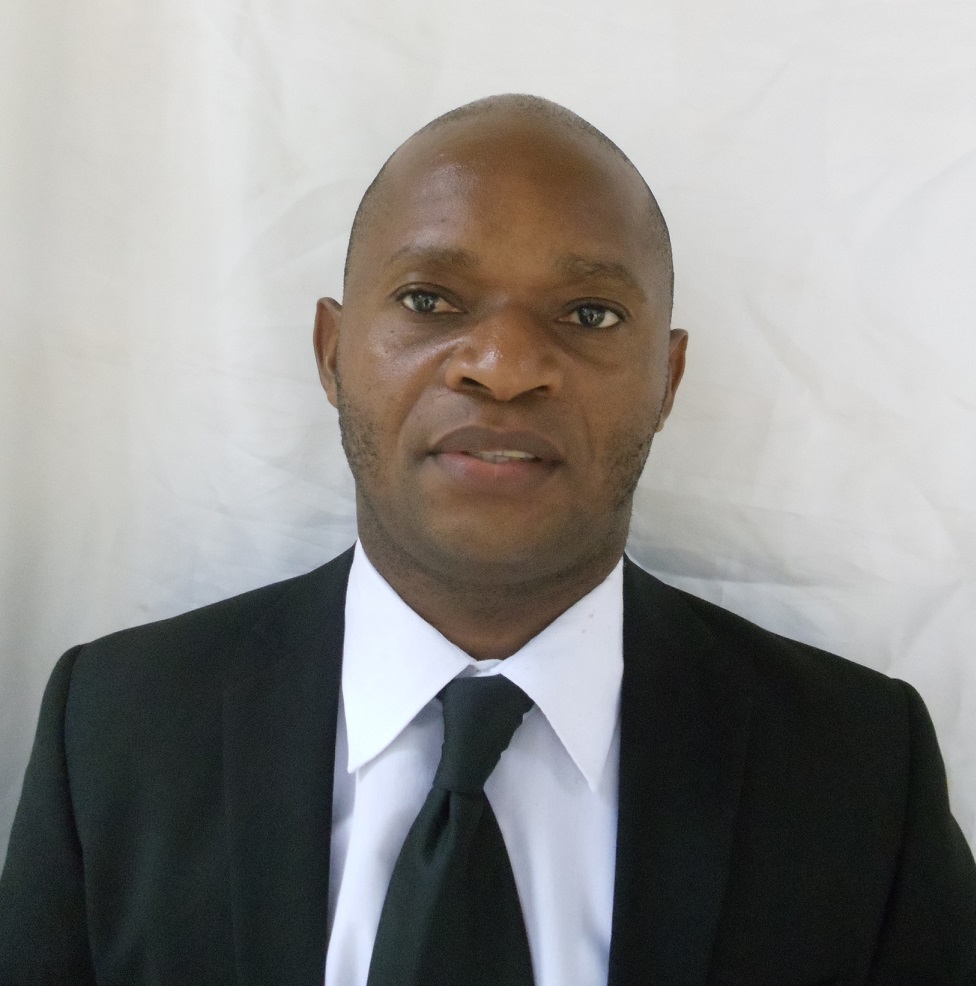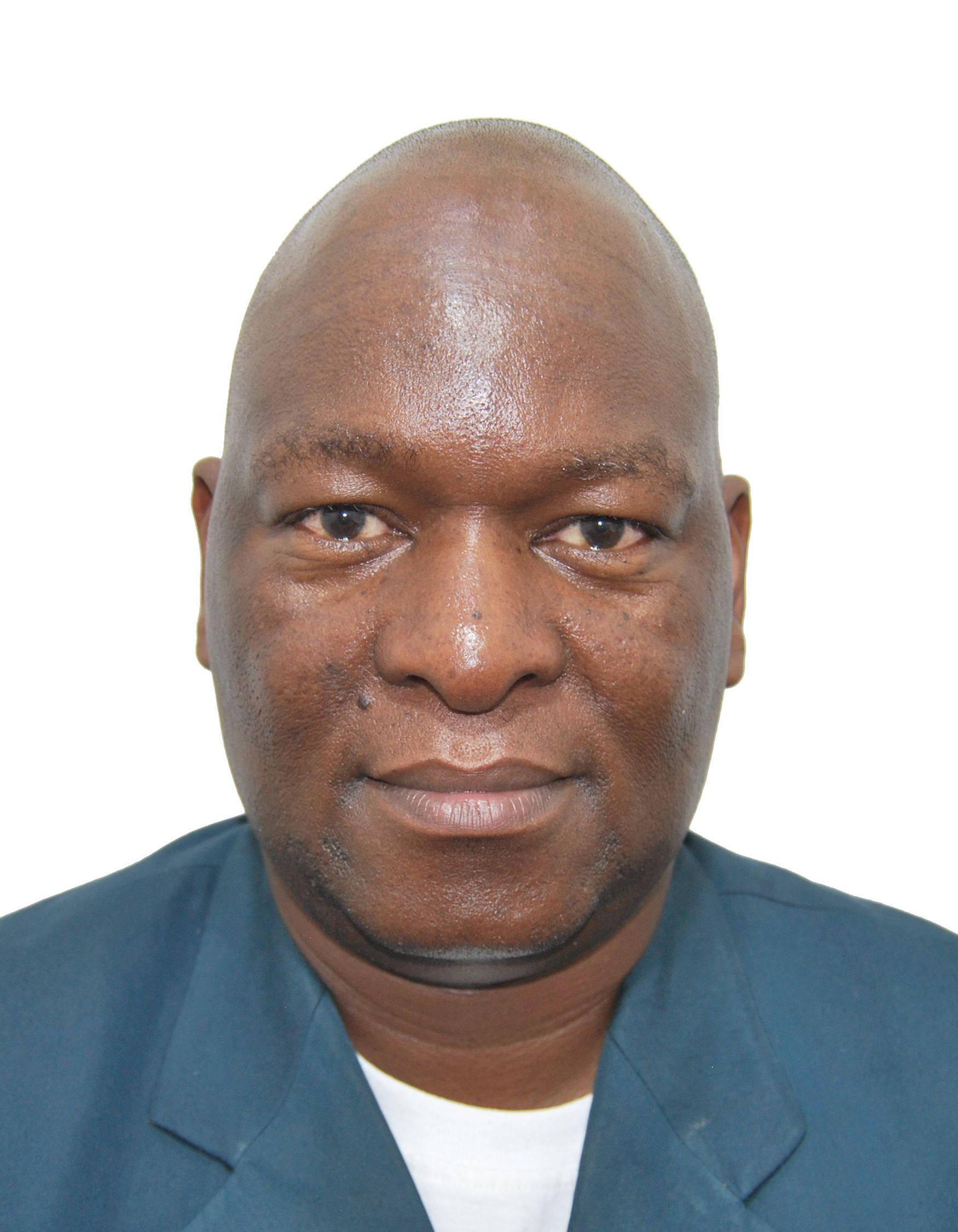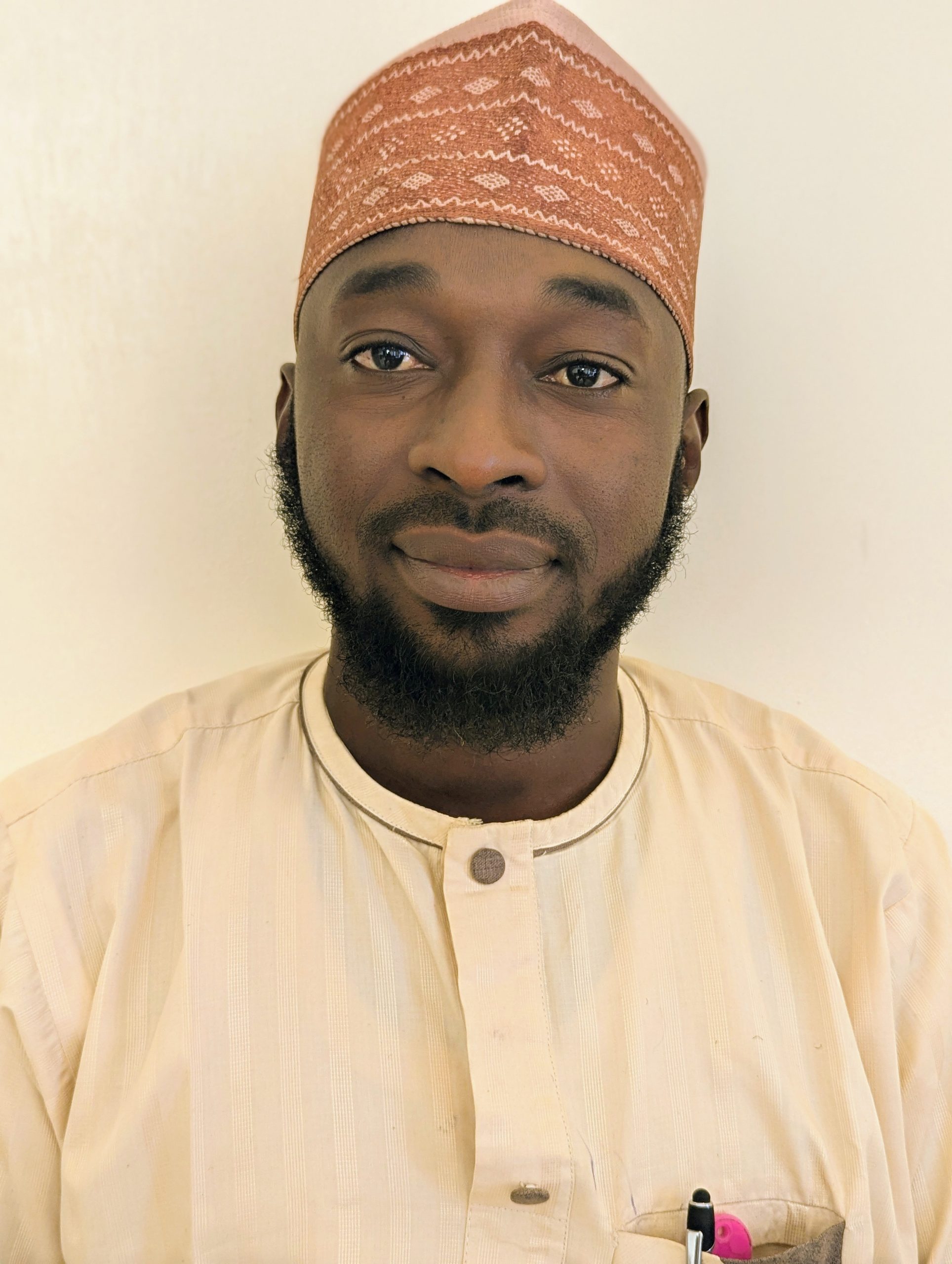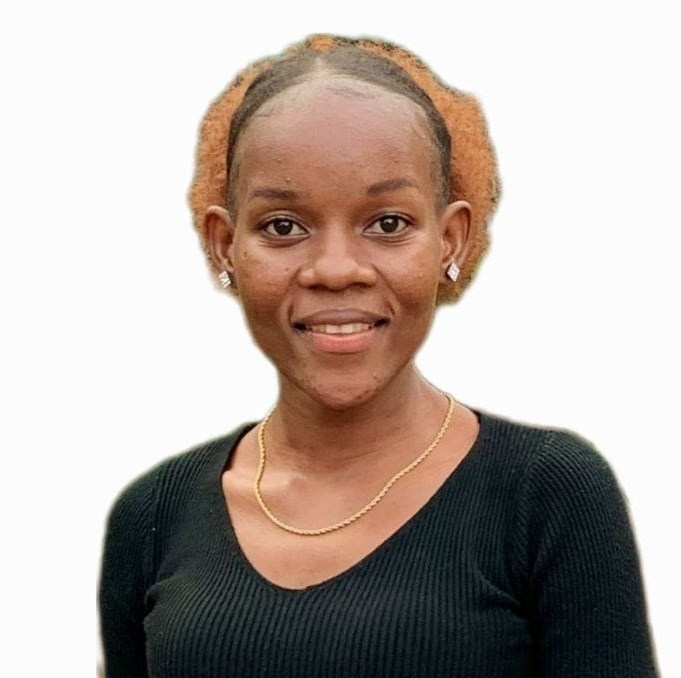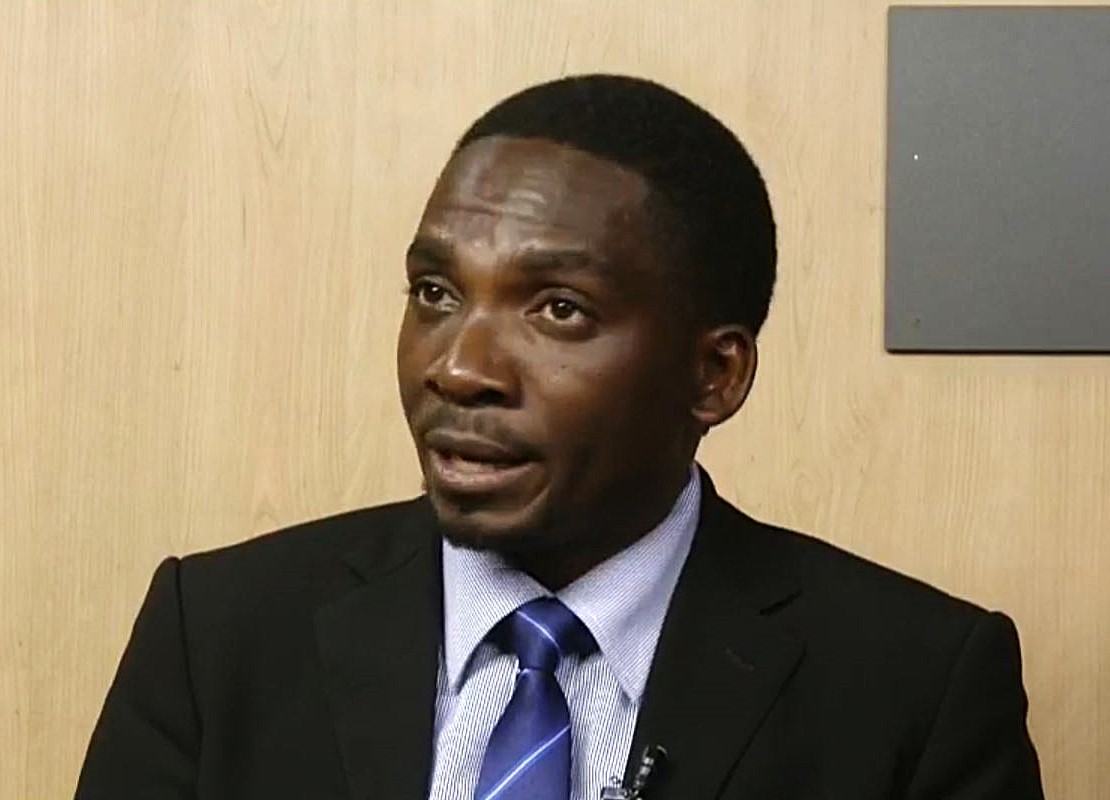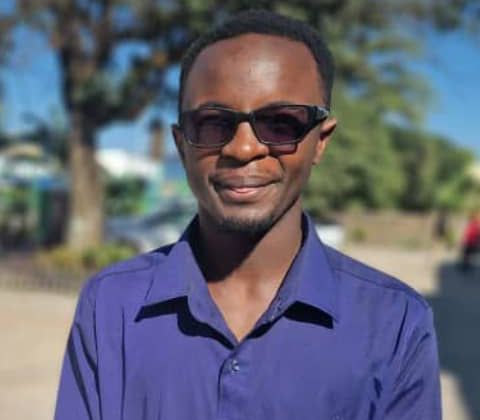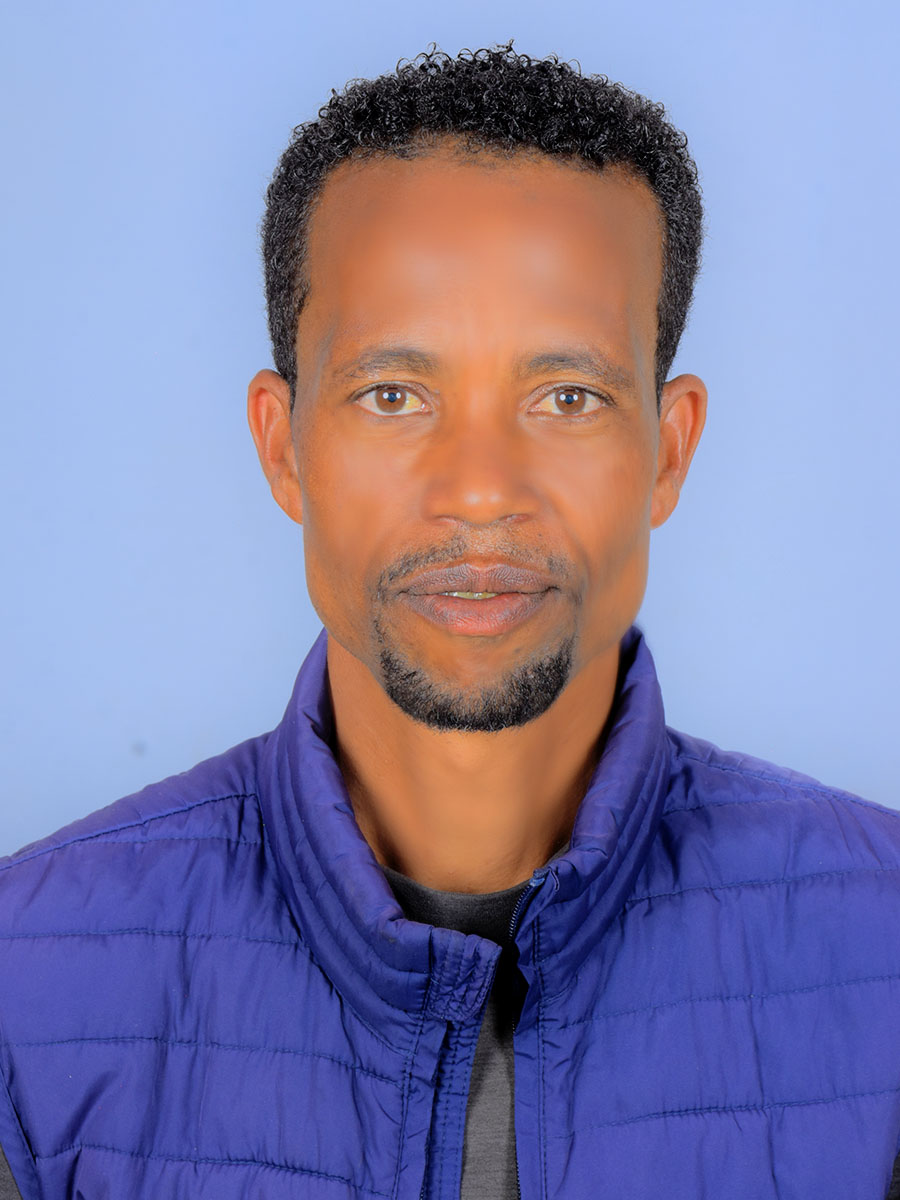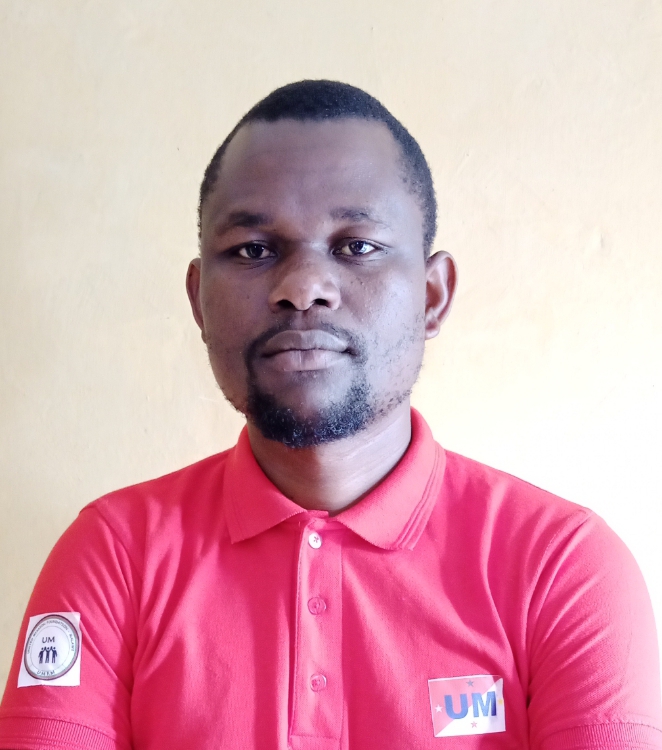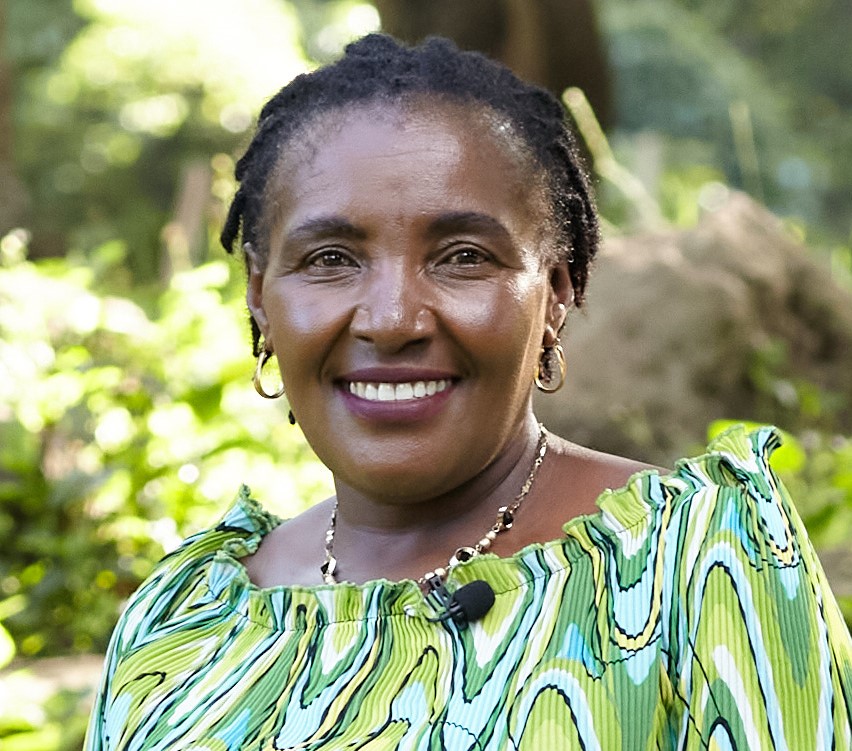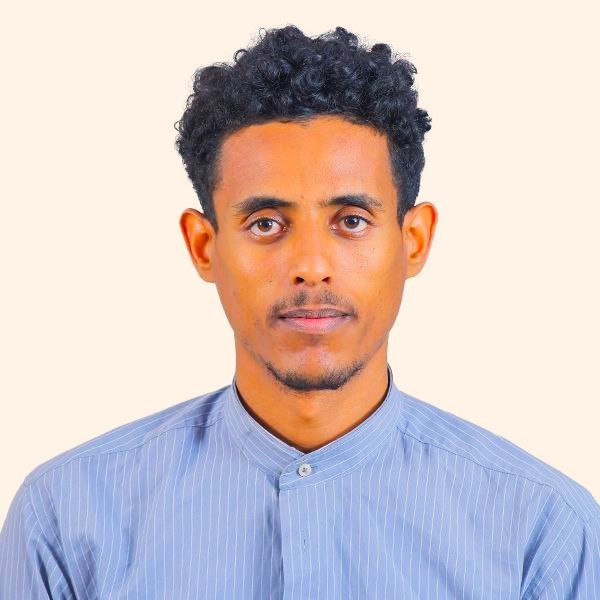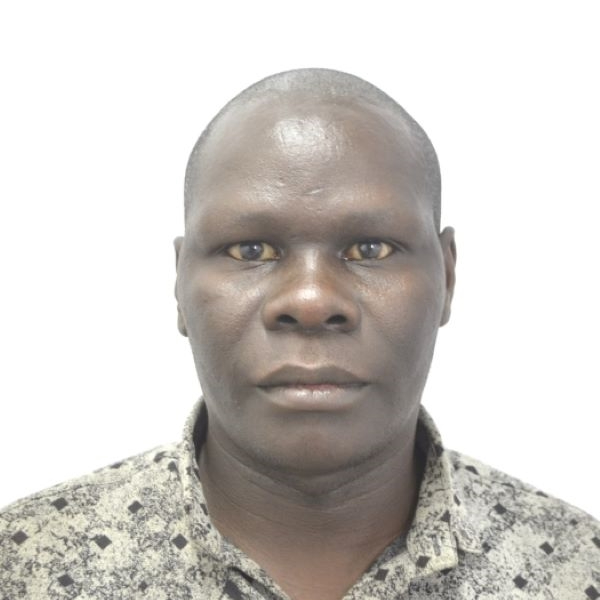ARIN FELLOWS
Simbarashe Crispen Kanyimo
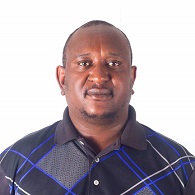
Simbarashe Crispen Kanyimo is a dedicated professional with over 15 years of experience in child protection, education, health program management, and research within humanitarian contexts. He has a proven history of enhancing service delivery for marginalized communities through working for organisations like the Norwegian Refugee Council and Zimbabwe National Family Planning Council
Simbarashe is a researcher at the Child Rights Research Centre at Africa University and is in the final year of his Doctor of Philosophy in Child Rights at the same institution. His doctoral research focuses on the social and cultural determinants of child sexual abuse in Tongogara Refugee Settlement, Zimbabwe. Utilizing a mixed-methods approach, his work aims to develop targeted interventions and policies to protect refugee children, grounded in child rights and intersectionality frameworks.
Simbarashe has participated in several impactful research projects. Notable examples include: The National Study on the Prevalence of School-Based Violence in Zimbabwe, conducted in collaboration with the Academic Research Centre and funded by Porticus ; A study on the Motivators and Barriers to Accessing Essential Health Care Services during the COVID-19 Pandemic in Zimbabwe, funded by UNICEF and The Rapid Assessment of the Impact of COVID-19 on Child Labour, Violence Against Children (VAC), and Gender-Based Violence (GBV)in Zimbabwe , also funded by UNICEF.
Simbarashe was part of the award-winning team that received the Research Council of Zimbabwe Presidential Community Innovation Award in 2024 for the project titled National Study on the Behavioural Uptake of the COVID-19 Vaccine, Routine Immunization, NCDs, and Maternal, Newborn, Child, and Adolescent Health and Nutrition Services in Zimbabwe in the Aftermath of the Pandemic.
Simbarashe also serves as the Executive Programs Coordinator at Tariro Trust, a role he has held since 2016. In this capacity, he leads collaborative initiatives in education, health, and child protection, managing annual budgets of up to $100,000 to support orphaned and vulnerable girls in Harare’s high-density suburbs. Under his leadership, Tariro has doubled its project reach, facilitated tertiary education for over a significant number of vulnerable girl students annually, and secured key partnerships to advance girls’ education and economic empowerment.
Previously, Simbarashe served as an Education Program Officer with the Norwegian Refugee Council, where he contributed to youth empowerment through vocational skills training, education in emergencies, and inclusive programming. He also played a key role in contextualizing the NRC’s flagship Youth Education Pack, transforming it into a community-based skills outreach program that impacted thousands of displaced youth.
Simbarashe holds a Master of Science in Child Rights and Childhood Studies from Africa University and a Bachelor of Arts in English and Communication Studies from Midlands State University. He has earned several professional certifications in areas such as Trauma Counselling, Systemic Family Counselling, International Refugee Law, Internal Displacement, and Protection in Urban Settings.
An accomplished researcher and advocate, Simbarashe has published on children’s rights, with a focus on legislative and governance frameworks in artisanal mining communities and feminist analysis of the African Mining Vision. His expertise, coupled with his commitment to evidence-based solutions, continues to drive impactful programs and policy reform for the most vulnerable populations
Haris Aliyu Hardo
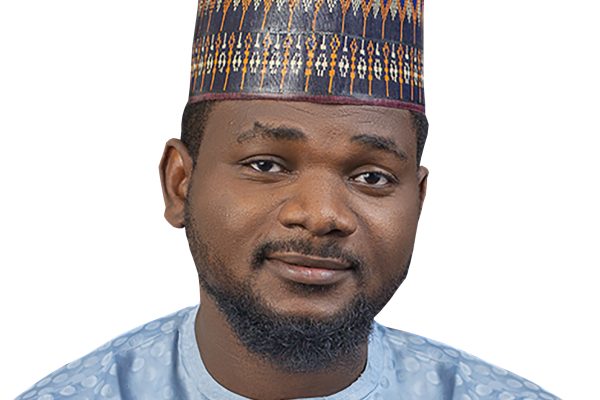
Haris is a social entrepreneur, researcher, and community development enthusiast with a deep commitment to social accountability, poverty reduction, and climate change.
As the Co-Founder and Executive Director of United Front Africa – a youth-led nonprofit organization working to accelerate sustainable peace and development in Northeast Nigeria – Haris is dedicated to developing and scaling innovative solutions, managing projects, and building systems to safeguard communities and enhance livelihoods across Nigeria.
Through his roles as both a volunteer and in leadership positions in multiple community-based organizations, he has become a passionate advocate for community-led climate action. He is particularly experienced in raising awareness about climate change, promoting inclusive environmental governance, and fostering stakeholder participation in the development and implementation of climate change mitigation, nature-based solutions, and energy transition policies.
Adamu Sulaiman Bawa
I am from Gawon Nama area, Sokoto State, Nigeria. I hold a degree in Applied Chemistry from Kebbi State University of Science and Technology, Aliero, Kebbi State (2010–2015). I also attended Sultan Maccido Institute for Qur’an and General Studies (2002–2008) and Yahaya Abdulkarim Model Primary School, Dorowa Road (1997–2002).
I later switched to the banking sector, where I gained valuable experience in marketing, sales, and loan processes over the years.
I have a strong passion for humanitarian work and enjoy helping my community. I am an active member of the Rotary Club in Sokoto State, an ambassador for the Institute for Economics and Peace, and a project coordinator with SB Diggi Foundation.
In addition to this, I am an author and have written several books, including Echoes of Resilience: The Unwritten Chapter of Paul Rusesabagina, a book about Pep Guardiola, and another about Diego Simeone. These books are available on platforms like Amazon and Selar. I am currently working on launching my new book titled Girl Child Begging: A Ticking Bomb in Northern Nigeria.
Dr. Yoksa Salmamza Mshelia
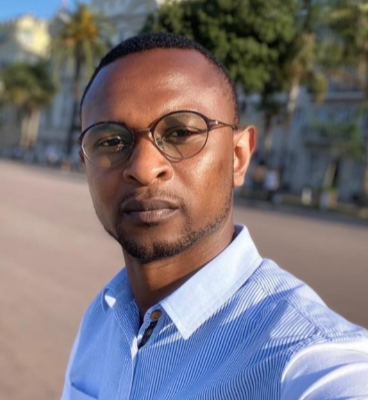
Dr. Yoksa Mshelia is a Research Fellow at the African Research and Impact Network (ARIN) and holds a Ph.D. in Environmental Planning and Management from Kenyatta University, sponsored by the German Academic Exchange Service (DAAD). His research focuses on climate change, urban planning, and ecological modeling, with expertise in GIS, GeoAI and remote sensing. In his work, Mshelia employs machine learning techniques to model land cover changes, urban heat islands, and their ecological impacts, with the goal of informing sustainable development policies and enhancing urban resilience in rapidly growing cities.
Mshelia previously worked as a Research Assistant with the Australian National University (ANU), where he conducted an inventory study on Urban Climate Governance in Lagos (Nigeria) and Dar es Salaam (Tanzania). He holds a Master’s in Environmental Planning and Management from Kenyatta University and a Bachelor’s in Environmental Biology from the University of Maiduguri, Nigeria.
Ann Nabangala Obae
My name is Ann Nabangala Obae, a Principal Programme Officer Climate Change at the Water Sector Trust Fund, a parastatal under the Ministry of Water, Sanitation and Irrigation. I hold a Master of Science in Project Management- International Irish University through Digital Advisory and Learning Centre (DALC) Education. Post Graduate Diploma in Project Management, – Cambridge Association of Managers (CAM) and a Bachelor of Science -Natural Resource Management from Egerton University. I have experience of over 20 years working with national and international civil and government institutions on aspects of rural and urban development specifically on Water and natural resources management, Climate change and food security in different of Kenya and Africa .
I am a certified member of the United Nations Framework on Climate Change (UNFCCC) as an a reviewer on the roster with mandate to review Nationally Determined Contributions Biennial Technical Reports (BTRs) and National Communications specifically on Land Use, Land Use Change and Forestry (LULUCF) Greenhouse Gas Emissions (GHGs) , crosscutting and general issues affecting countries delivery of NDC targets and commitments. I am Core member to the Ministry of Water Sanitation and Irrigation on Greening and Climate Change Unit. Supporting the Hon of Africa on Ground Water Resilience as Environmental safeguards specialists. I was a Team Leader of the International Fund for Agricultural Development (IFAD)- Upper Tana Natural Resources Management Project (UTaNRMP). I have previous experiences working with farming communities on sustainable agriculture and participatory forest management in Kenya. Coordinating the East Africa Living Network under the Global Nature Fund and Water access projects in Nigeria and Kenya working with the Japan Water Forum.
Through my leadership I have supported the National Task force on development of Climate Change Learning strategy for Kenya. Supported concept development on “Enhanced financing for green water and sanitation Technologies in Kenya” for the Green Climate Fund. Spearheaded technical assistance to WSTF on feasibility study of Catalysing Low carbon & green technologies for effective water services delivery in Kenya from the Climate Technology Innovation Centre- CTCN Denmark
Awonke Baba
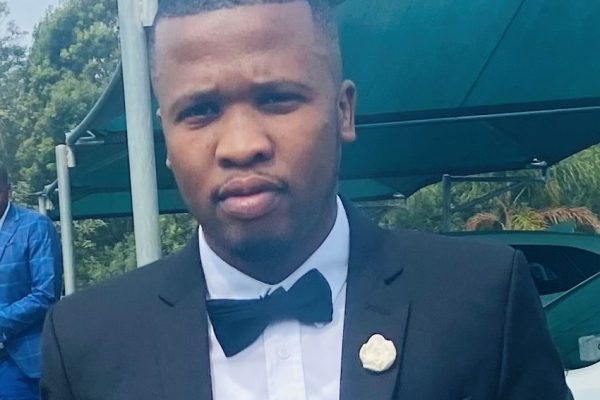
Awonke Baba is an LLM/MPhil candidate in law, State and Multilevel government at the Dullar Omar Institute, University of the Western Cape. He is also a Research fellow at the African Research & Impact Network. He holds a Master of Arts (MA) in Political Sciences/International Relations from UWC, where he has extensively written and published on African continental and regional institutions.
Vayanga Donzo
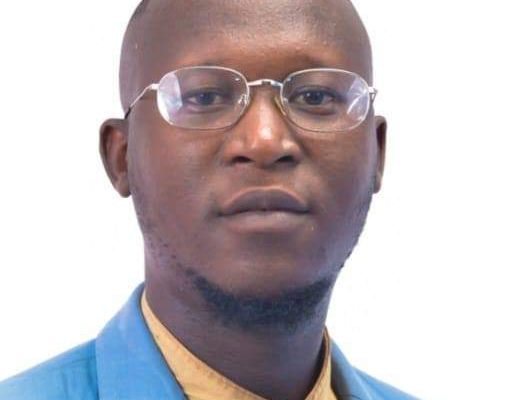
I am Vayanga Donzo student in a Master of Research in Migration Cooperation and local development at the General Lansana County University of Sonfonia (Conakry), I am a scholarship holder and focal point of Africa Research and Impact Network in the Republic of Guinea, National Coordinator of MOCK COP 2023, National Coordinator of the Green Initiative for Climate (IVC) in Guinea, National Co-coordinator of the International Youth Federation United for Water and Climate (UN1FY) in Guinea, Co-coordinator of Junior of Social Change Factory in Guinea (JSCF), Coordinator of the initiative on assisted natural regeneration of community forests, alumni of the 1st edition of training in climate change from the Center of Competence in Climate Change (4C Morocco), Summer Alumni of the Pan-African Alliance for Climate Justice (PACJA), from the Yali Dakar Regional Center in Civic Leadership and intern at GreenTransformation2050.
Mes salutations distinguées.
Godfrey Maina Noel

Godfrey Maina Noel is a dynamic and results-oriented professional with expertise in project management, systems thinking, and sustainable development. Currently serving as a Project Manager at MPost, a venture backed technology startup, Godfrey has over five years of experience driving impactful projects across sectors, including clean energy, logistics, and agriculture.
Godfrey’s professional journey has been enhanced through participation in numerous capacity-building programs, including the beVisioneers Mercedes-Benz Fellowship, UNEP InforMEA’s International Environmental Law and Governance training, INCO Academy’s Green Digital Skills, and training in Systems Practice from Acumen Academy and Omidyar Group. These programs have equipped him with a multidimensional approach to addressing global challenges and strengthened his ability to create sustainable social impact through innovative problem-solving and cross-sector collaboration.
He has been instrumental in implementing transformative initiatives such as the Results-Based Financing (RBF) model for the Sayonapps Clean Cooking Project (SCCP), which has enhanced access to clean energy solutions for underserved communities. Godfrey’s work often involves fostering partnerships with development organizations, government agencies, and private entities to design scalable, planet-positive solutions that address pressing needs such as climate adaptation and resilience. As a member of the Youth Constituency of the United Nations Framework Convention on Climate Change (YOUNGO), Godfrey actively contributes to operations that amplify youth voices in global climate governance. His commitment to knowledge sharing and stakeholder engagement has also been demonstrated through his collaborations with the Ministry of Agriculture in Kenya, where he supports training programs focused on food security, climate adaptation, and resilience for small-scale farmers.
Passionate about leveraging innovation to tackle challenges such as climate change, inequality, and food security, Godfrey is committed to shaping a sustainable future. Through his work and extensive network, he continues to drive initiatives that empower communities and promote inclusive growth.
Dr. Wondimu Kebede
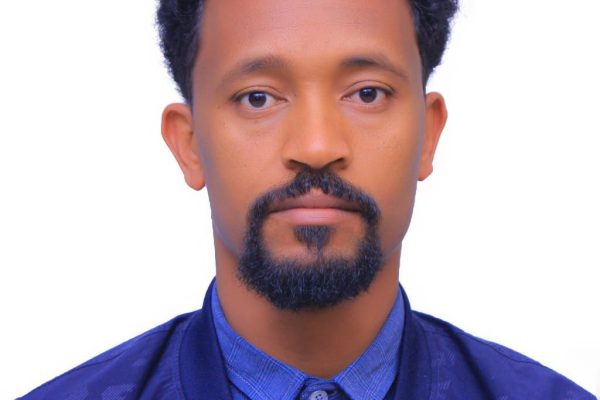
Dr. Wondimu Kebede holds a PhD in Water Management from Africa Center of Excellence for Water Management at Addis Ababa University, Ethiopia. He has multidisciplinary experience gained from working in academia, industry and government sectors in Ethiopia. He is currently an Assistant Professor at Wachemo University, Ethiopia. His research focuses on sustainable development, environmental management, water management, and the development of innovative technologies for removing emerging contaminants from water. Previously, he received a Finnish National Agency for Education (EDUFI Fellowship) grant in 2023 and worked as a visiting researcher at LUT University in Finland for six months. Dr. Wondimu has published several papers in high-rank academic journals. He currently serves as a Consulting Editor for the Advances in Bamboo Science journal.
Doreen Jelagat
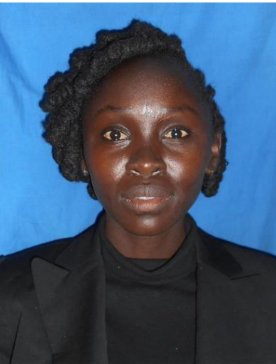
A distinguished Kenyan professional specializing in Geomatic Engineering and Geospatial Information Systems, with a wealth of expertise in spatial data analysis, cadastral surveying, and GIS consultancy. She currently serves as a Cartographer I at the Ministry of Lands, Public Works, Housing, and Urban Development, where she spearheads projects involving geospatial data management, map design, and remote sensing applications.
Doreen is a full member of the Institution of Surveyors of Kenya and actively contributes as a Young Surveyors Committee member.
She holds a Bachelor’s degree in Geomatics Engineering and Geospatial Information Systems from Dedan Kimathi University of Technology, graduating with Second Class Honors (Upper Division). She furthered her academic journey with a Master’s degree in Geoinformatics at Taita Taveta University, where her groundbreaking research on Lake Baringo’s water levels earned a publication in the peer-reviewed journal Discover Water. Doreen is currently pursuing a Ph.D. in Environmental Engineering at the same institution, demonstrating her commitment to advancing knowledge and practice in geospatial sciences.
Over her career, Doreen has collaborated with esteemed organizations, including the Baringo County Conservancy Association, Arc Surveys and Chevron Africa, contributing to projects ranging from wildlife conservation, Land survey to infrastructure development. Her technical proficiency encompasses a range of software tools, including GIS applications like ArcGIS, QGIS, and Civil 3D, and advanced programming languages for geospatial data analysis.
Beyond her professional achievements, Doreen is passionate about promoting sustainable development through innovative geospatial solutions. Her dedication to empowering communities through participatory mapping initiatives underscores her belief in technology’s potential to address land tenure challenges and resource conflicts.
When not engaged in professional pursuits, Doreen enjoys drawing maps, traveling, and reading motivational literature, reflecting her dynamic and multifaceted personality.
Amdom Gebremedhin Berhe
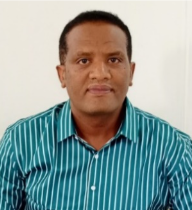
My name is Amdom Gebremedhin Berhe, and I am from Ethiopia. I hold an M.Sc in Climate Change and Water Management from Ostfalia University of Applied Sciences in Germany, as well as a B.Sc in Agricultural Engineering from Debub University in Ethiopia.
I am currently pursuing a Ph.D. and serving as an Assistant Professor at Mekelle University, a public institution. At the Institute of Climate and Society, my responsiblities includ teaching, conducting research, and engaging in community service. My research focuses on the intersection of climate, water, agriculture, and adaptation strategies.
Over the years, I have a cquired substantial experience in teaching and research through active involvement in research projects and participation in both national and international short-term training programs. As part of my Ph.D. studies, I have published articles in peer-reviewed journals and contributed a report on spatio-temporal irrigation water requirements in Eastern Tigray, Nortehren Ethiopia, which was submitted to the Bayer Foundation fellowship as part of an award application. Additionally, my international travel experiences have broadened my cultural understanding and perspectives. I am confident in my strong communication and interpersonal skills.
Dr. Blasius Henry Ngayakamo
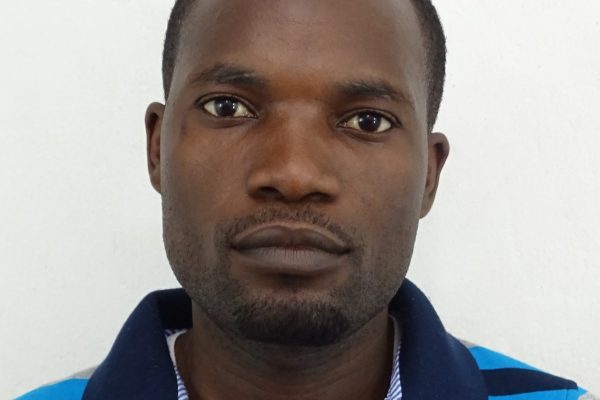
Dr. Blasius Henry Ngayakamo is a materials scientist and educator, recognized for his innovative contributions to sustainable construction and STEM education. He specializes in developing eco-friendly building materials, including geopolymer earthen blocks, and valorizing waste for sustainable engineering solutions. With a career spanning academia and industry, Dr. Ngayakamo has led interdisciplinary research and mentored students to address climate resilience and sustainable construction materials.
Dr. Ngayakamo earned his PhD in Materials Science and Engineering from the African University of Science and Technology, Nigeria, and holds advanced degrees in education and materials science. He has conducted research and taught globally, including at California Polytechnic State University, INTI International University, and the Fraunhofer Institute in Germany.
His work is widely published in peer-reviewed journals, focusing on eco-friendly material innovations and waste valorization. Dr. Ngayakamo is committed to bridging the gap between research and real-world applications, fostering community-driven solutions to global sustainable construction materials challenges.
Mr. Daniel Nyukuri Kwoba
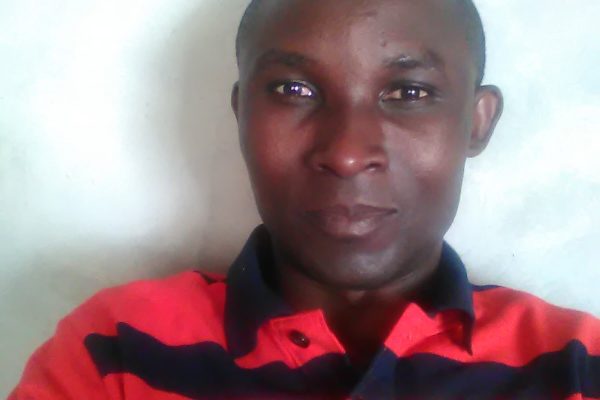
Daniel is a laboratory analyst with sixteen years of experience. He has a solid academic and professional background in Pharmacology and Toxicology at the University of Nairobi, Kenya. His research specialty intersects sustainability in drug discovery and development and climate change. His research interests research in natural products, toxicology, pharmacology, reproductive biology, and comparative physiology, food safety and drug analysis. He has contributed significantly to academic and practical research in his field, playing roles in training and mentoring interns and junior staff.
Mathew Svodziwa
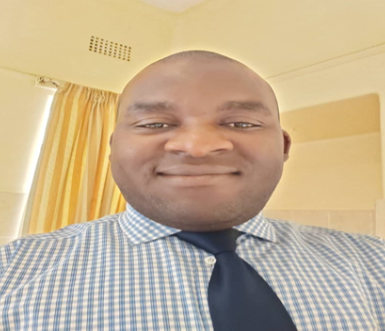
Mathew Svodziwa is a dedicated Social Scientist with a profound research interest in Climate Change Adaptation in Rural Livelihoods, focusing on the intersection of environmental challenges and sustainable development practices. His work emphasizes the development and implementation of strategies to enhance resilience among vulnerable communities, particularly in rural settings affected by climate variability. Dr. Svodziwa holds a Doctor of Philosophy (PhD) in Development Studies from the University of South Africa (UNISA), reflecting his expertise in examining complex socio-economic and environmental dynamics. He also holds a Master of Social Science in Development Studies from Lupane State University (LSU), which laid the foundation for his specialization in development-focused research. Additionally, he earned a Bachelor of Social Science (Special Hons) in Monitoring and Evaluation from LSU and a Bachelor of Arts (Hons) in War and Strategic Studies from the University of Zimbabwe (UZ), showcasing his multidisciplinary academic background and analytical capacity in both social development and strategic contexts. Dr. Svodziwa’s qualifications and research interests converge to position him as a thought leader in addressing rural livelihoods’ adaptation to climate change, combining rigorous academic training with practical insights into sustainable development.
CHUKWU EMMANUEL OGWU
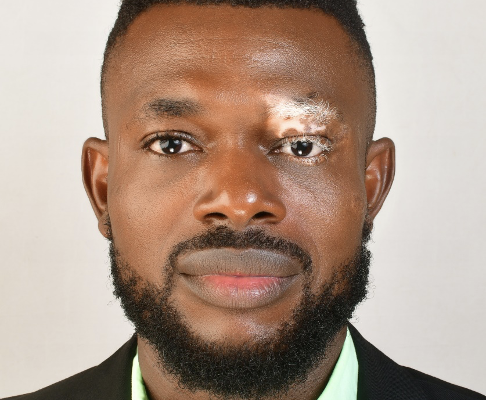
Chukwu Emmanuel Ogwu is an experienced and result-oriented Chemical Laboratory/Environmental Analyst and Quality control manager with experience in field sampling and analysis of hydrocarbon products, water and wastewater, soil and sediments and gaseous emissions using Hi- tech instruments. He is an expert in research, data collation, interpretation and technical report writing.
His research interest is to understand the interactions and mechanism of actions of chemicals in the environmental using the Zebra fish embryo model. His research aims at using a high-content approach for effect-based monitoring with the zebrafish embryo model on complex mixtures in surface water, soil and sediment which he believes will help solve environmental challenges relating to chemicals.
Emmanuel is a Nigerian and a PhD research candidate at the Helmholtz Centre for Environmental Research, UFZ, Leipzig, Germany. He is also skilled in the implementation of ISO/IEC 17025:2017 (General Requirements for the Competence of Testing and Calibration Laboratories), ISO 9001:2015 (Quality management system) and ISO 14001:2015 (Environmental Management System).
Albert Novas Somanje (PhD)
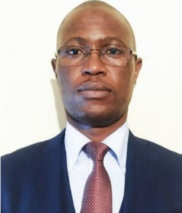
Dr. Albert Novas Somanje, a Zambian sustainability scientist, is an accomplished expert in sustainable agriculture, climate change adaptation, and rural development. With a PhD in Sustainability Science from the United Nations University Institute for the Advanced Study of Sustainability (UNU-IAS) and the University of Tokyo, Dr. Somanje has devoted his career to addressing critical issues at the nexus of agriculture, climate, and development.
Dr. Somanje’s academic journey began with a Bachelor of Science in Agriculture from the University of Zambia. He further specialized with a Master of Science in Climate Change and Development from the University of Cape Town, followed by additional certifications in project management, natural capital, and leadership from esteemed institutions like UC Davis and UNU-IAS. His academic rigor is matched by his practical experience, including key roles at Zambia’s Ministry of Agriculture, where he spearheaded sustainable agricultural projects and mainstreamed climate adaptation strategies across the country.
Currently serving as Principal Agricultural Officer, Dr. Somanje coordinates national programs in sustainable crop production and collaborates with global and regional stakeholders such as UNDP, FAO, and WFP. His prior roles included Provincial Senior Agricultural Officer overseeing agricultural initiatives in Zambia’s southern province and Senior Agriculture Officer focusing on climate-resilient agricultural development programs and projects.
A prolific researcher and consultant, Dr. Somanje has contributed to global conversations through publications on urban-rural linkages, conservation agriculture, and climate-smart farming. His work has been recognized with prestigious awards, including a DAAD Post-Doctoral Fellowship and a Japan Foundation PhD Scholarship.
Driven by a vision for sustainable development, Dr. Somanje leverages his extensive expertise, collaborative spirit, and innovative solutions to transform agricultural systems and enhance resilience in Zambia and beyond.
Dr Johannes Bhanye
My name is Dr Johannes Bhanye. I am an interdisciplinary researcher and critical urban scholar whose research revolves around four key themes: (a) urban informality, (b) geographies of urban inclusion and exclusion, and (c) urban transformation and (d) cities, space and power. My goal is to contribute to knowledge, public debate, policy discussions and practice around these themes. I am currently a Postdoctoral Research Fellow at the African Climate and Development Initiative (ACDI), University of Cape Town. My current research is on Urban water adaptation: Exploring practices of adaptive governance for building urban water resilience in Cape Town’s informal settlements. I hold a Ph.D. in Social Sciences (Migration and Land Settlement), an M.Sc. in Social Ecology, and a B.Sc. in Urban and Regional Planning both from the University of Zimbabwe. I am also affiliated with the African Center for Cities (ACC) where I teach the module – Climate Change and the City for the Masters in Sustainable Urban Practice program. I am also a former Research Fellow at the University of the Free State, the Andrew W. Mellon Foundation and the Centre for Applied Social Sciences (CASS) at the University of Zimbabwe. I have published extensively in High Impact International Journals like Urban Forum, Sustainable Development, Land Use Policy, Anthropology Southern Africa, Pan-African Conversations, Journal of Asian and African Studies, Town and Regional Planning, African Identities, and International Journal of Sustainable Development & World Ecology, among others. My recent BOOK: “COVID-19 Lockdowns and the Urban Poor in Harare, Zimbabwe: Emerging Perspectives and the Morphing of a Sustainable Urban Future, published by Springer, Cham is available at: https://link.springer.com/book/10.1007/978-3-031-41669-9. Outside academia, I have more than 7 years experience in applied policy and development research, undertaking commissioned research and program evaluations and baseline studies on issues such as affordable housing, urban innovation, local economic development and inclusive urban economies, urban economic resilience, urban poverty and inequality (urban social geography), climate justice for marginalized populations, immigrants and racialized people’s experiences for national and local government agencies, civil society and international organizations such as USAID, FAO, CESVI Zimbabwe, Center for Affordable Housing Finance (CAHF), and Homeless International, among others. My research and professional experience spans across countries such as Zimbabwe, Senegal, Zambia, China, Germany, South Africa, Lesotho, Morocco, Belgium, Ghana, and Switzerland, among others.
Amelework Kindihun
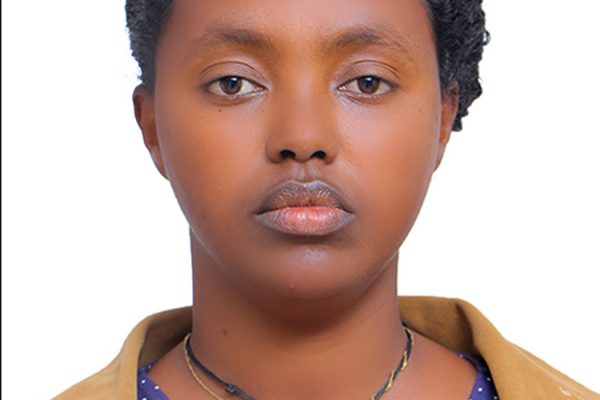
My name is Amelework Kindihun, and I was born on June 21, 1991, in Ethiopia. I am a passionate and highly skilled environmental specialist with over nine years of professional experience in natural resource management, sustainable land practices, and climate resilience strategies. As an Ethiopian national, I am currently based in Addis Ababa, where I dedicate my efforts to advancing environmental research and education.
Educational Background
I hold a Master’s degree in Natural Resource and Environmental Management from Addis Ababa University (2015–2017) and a Bachelor’s degree in Geography and Environmental Studies from Wollo University (2010–2012). Additionally, I enhanced my pedagogical expertise with a Postgraduate Diploma in Teaching (PGDT) from Haromaya University (2012–2013).
Research and Academic Career
Throughout my career, I have made significant contributions to environmental studies, focusing particularly on soil fertility, land consolidation, and climate-smart agriculture. My Master’s research explored farmers’ perceptions of soil fertility management in Ethiopia’s central highlands. I have also participated in international projects, including serving as a research assistant for the University of Aberdeen’s Biomass Reduction and Environmental Air study in Africa.
As a lecturer at Arsi University, I taught courses on agroforestry and farming systems while leading and facilitating projects related to sustainable land management and climate-smart practices. These roles allowed me to ensure project outcomes were community-focused and impactful.
Professional Experience
My career highlights include serving as a Research Assistant with the International Livestock Research Institute (ILRI), where I supervised data collection for climate-smart agriculture surveys across multiple Ethiopian regions. I conducted critical research on land fragmentation and consolidation, and I collaborated with Addis Ababa University to assess the impact of biofortified staple crops on commercialization and production.
Skills and Expertise
I am proficient in various data analysis tools, including SPSS, STATA, GIS, and R. My skill set also includes planning, supervising, and reporting field research. I pride myself on strong interpersonal, negotiation, and organizational skills, which have been instrumental in coordinating multidisciplinary teams and managing complex projects.
Field and Training Experiences
My fieldwork spans Oromia, Amhara, and Tigray regions, where I have engaged directly with local communities. I have participated in numerous workshops and seminars, such as sessions on climate-smart agriculture, land consolidation, and scientific research writing. These experiences have deepened my understanding of the challenges and opportunities in the field of environmental management.
Recognition and Impact
My contributions have been recognized through collaborations with organizations such as CIAT, GIZ, and IPSS. My work not only advances scientific understanding but also supports communities in building climate resilience and improving livelihoods. I am committed to using my expertise to drive sustainable environmental practices and positively impact the lives of those I work with.
Thomas Kizito Oduor
Geteneh Haile Shoddo (PhD)
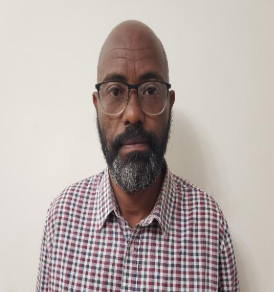
Getaneh Haile Shoddo is a dedicated academic professional with over 15 years of experience in higher education within Ethiopia. Currently serving as a Senior Associate Professor at Jigjiga University since October 2008, Getaneh has made significant contributions to teaching and research. He is committed to fostering an engaging learning environment for students from diverse social and cultural backgrounds, utilizing effective teaching methods and strong communication skills. His responsibilities include course administration, mentoring students, and leading research projects, all while ensuring high standards of academic achievement.
In addition to his teaching role, Getaneh has been actively involved in various research projects, focusing on critical areas such as climate change, land use, and environmental management. Notable projects include the “Local Histories of Climate Change in the Horn” and the UN Habitat’s Solid Waste Management Assessment, where he demonstrated his expertise in data analysis, community engagement, and policy advocacy. His ability to navigate complex research environments and collaborate with stakeholders has been instrumental in producing valuable insights that contribute to sustainable development in marginalized communities.
Getaneh holds a PhD in Environmental Management from the University of South Africa and has published multiple research articles in reputable journals. His work emphasizes the importance of traditional knowledge and sustainable practices in addressing environmental challenges. Fluent in English, Afan Oromo, and Amharic, he is also engaged in community service initiatives aimed at raising awareness about climate change and waste management. With a strong commitment to academic excellence and community development, Getaneh continues to impact the educational and environmental landscape in Ethiopia.
Dr. Olasunkanmi Habeeb Okunola
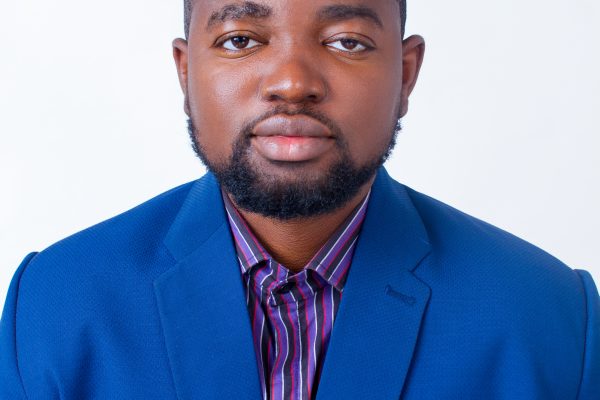
Dr. Olasunkanmi Habeeb Okunola is a Senior Research Associate at the United Nations University – Institute for Environment and Human Security (UNU-EHS) in Bonn, Germany. An expert in disaster risk reduction and climate change adaptation, Dr. Okunola has over a decade of experience in research, policy development, and teaching. His work centers on advancing resilience planning through innovative approaches to adaptation, sustainability, and disaster risk reduction. He holds a Ph.D. in Urban and Regional Planning from Obafemi Awolowo University, Nigeria.
Dr. Okunola has conducted extensive research and implemented projects on disaster risk governance and climate change adaptation in cities across the Global South and North. He has successfully led and managed high-impact initiatives, including Urban Resilience in 50 African Cities, Transformative Recovery for Minimizing Loss and Damage, Integrated Disaster Governance, Community Resilience to Climate Change Extreme Events, Cascading and Systemic Risks from Climate Extreme Events, and Social Cohesion and Inclusive Education in Informal Settlements.
In his professional career, Dr. Okunola has collaborated extensively as a project manager, team leader, component lead, and chief reporting officer on initiatives supported by organizations such as the World Bank, Ford Foundation, International Development Research Centre (IDRC), and the German Academic Exchange Service (DAAD). His contributions have earned him prestigious scholarships and fellowships, including the DAAD Scholarship, Alexander von Humboldt Fellowship, and the Mary Fran Myers Scholarship. He has also published numerous scientific papers and fostered global collaborations with experts from Germany, England, Saudi Arabia, South Korea, Australia, Singapore, and India.
Beyond academia, Dr. Okunola is a sought-after public affairs analyst. His insights on disaster risk reduction and climate resilience have been featured on leading platforms such as the London School of Economics, The Brookings Institution, and The Conversation. His expertise has been highlighted in major news outlets, including The New York Times, Financial Times, The Washington Post, and Al Jazeera. Additionally, he frequently contributes to international media such as Radio France Internationale (RFI), BBC, and Newzroom Afrika.
Dr. Yunana Tanko
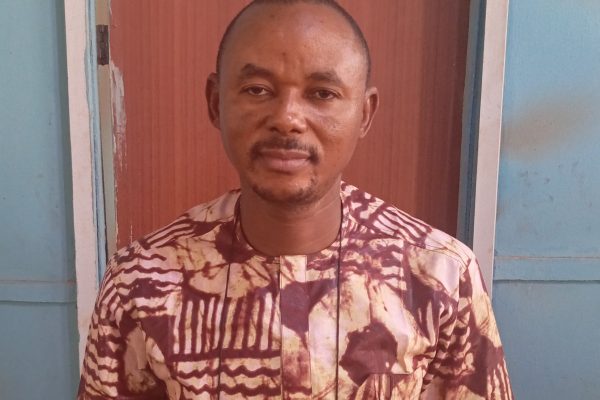
Dr. Yunana Tanko was born in 1984 from a family of Mr Tanko Bawa. An origin of Birnin-Gwari local government area of kaduna state, Nigeria, A senior lecturer in the department of physics kaduna state college of education gidan waya. Graduated from federal University of technology minna Nigeria in 2012 with a B. Tech degree in Physics/Telecomminication. He obtained his M.Sc and PhD degree in solid state physics from Nigerian defence academy in 2019 and 2024. Dr Yunana Tanko is a reputable member of solar energy society of Nigeria and has published his research findings in reputable Foreign and International Journal in Renewable Journal. He is married with children.
AROUNA ASSOUMA
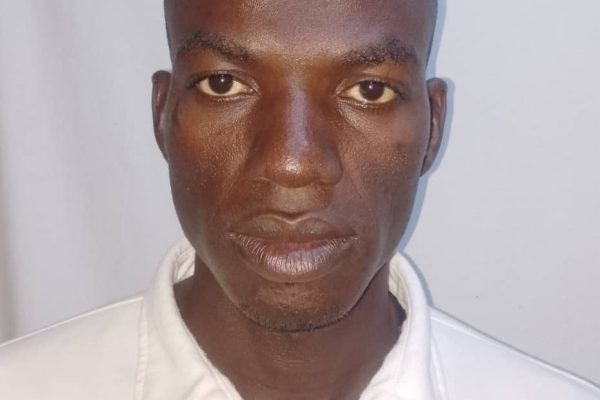
Arouna ASSOUMA is an Agricultural Economist with a Ph.D. in Natural Resource Economics. Dr. Arouna ASSOUMA holds a Master’s Degree in Agricultural Economics. He has over ten years of experience developing projects, designing development, climate change, and the Impact evaluation of projects/programs. He also works as a climate change mitigation project advisor in Benin, providing meteorology information to smallholders. Dr. ASSOUMA is a member of AfricClimActiv Research project for climate change.
Dr. Arouna ASSOUMA has experience as a Business and Digital Coach over 5 years supporting Small and Medium Enterprises. Dr. ASSOUMA is a data scientist. He conducts data collection, data analysis, and reports. He also monitors and evaluates projects/programs. He masters data collection and analysis tools such as Kobotoolbox, R, Stata, SPSS, and Power BI very well. Data analysis methods such as linear regression, logit, probit, probit, propensity score matching, and Best-Worst Scaling are often used to reach his goal.
His thesis research topic is Agribusiness Clusters’ impact evaluation on performance economics. Given this topic and his professional experiences, Dr. ASSOUMA has a solid background in impact evaluation and climate change in the Agricultural field.
Dr. ASSOUMA has a wide range of knowledge in several fields, including Agribusiness Clusters, Climate change, environment economics, agro-pastoral economy, marketing circuits, agricultural value chains, SME Loop business coaching, and business plan writing for entrepreneurs.
Erick Juma Kashara
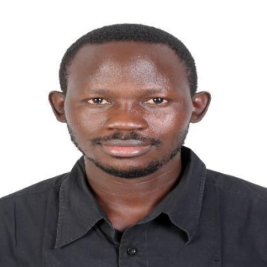
I am Erick Juma Kashara 35 years old from Siaya County, Kenya. Currently, PhD student at Rongo University, Kenya pursuing Communication Studies. I graduated with my Master’s degree in Journalism and Media studies in 2022 and did my bachelor’s degree in Media Science both at Moi University, Eldoret, Kenya.
I am a freelance Journalist, Part Timer Lecturer at Rongo University, Maseno University and Kabianga University, Communication expert and a researcher with over 6 years’ experience in media, communication and social science research, and a nose for research in digital media, climate change, science communication, agricultural communication, human rights, culture, health and development. I have proven track record in working as a lecturer, communication expert, journalist, and research in communication and journalism.
As a young scholar, I have spent time working with farmers organization known as Kenya National Farmer Federation (KENAFF) to understand the community needs and challenges in regards to climate change and agriculture and climate smart adaptations. Also to enhance my journalistic and research skills in the field of science communication specifically in agricultural and climate change communication. The farmer’s organization has given me an opportunity, where I daily interact with and help develop solutions to developmental challenges such as poverty, environmental pollution, health and education.
KOKOU Kokouvi Bruno
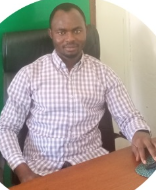
Researcher in Botany, Plant Ecology, and Climate Change Mzuzu University, Malawi African Centre of Excellence in Neglected and Underutilised Biodiversity PhD Student second year Kokou Kokouvi Bruno is a dedicated researcher specializing in plant systematics, ethnobotany, plant genetic resource valorization, and sustainable environmental management. Currently based in Malawi at Mzuzu University, my research focuses on the impacts of climate change on biodiversity, plant species conservation, and improving the livelihoods of local communities.
Am, presently conducting an in-depth study on Uapaca kirkiana Müll. Arg., a critical species for local populations in Malawi. This research investigates the adaptive responses of the species to climate change and the anthropogenic threats impacting its natural regeneration and sustainable utilization. His work aims to provide innovative strategies for forest resource conservation and management in sub-Saharan Africa. In addition, I published many scientifically articles (15) in different area in Africa. My contributions also extend to sustainable ecosystem management, as demonstrated by my work on ecosystem services in the Hann Forest and Zoological Park in Dakar, Senegal.
With a strong background in plant ecology, species diversity, forest landscape restoration, and natural resource management, i combines scientific rigor with a commitment to sustainable solutions to address contemporary environmental challenges.
Ngone Mirimi
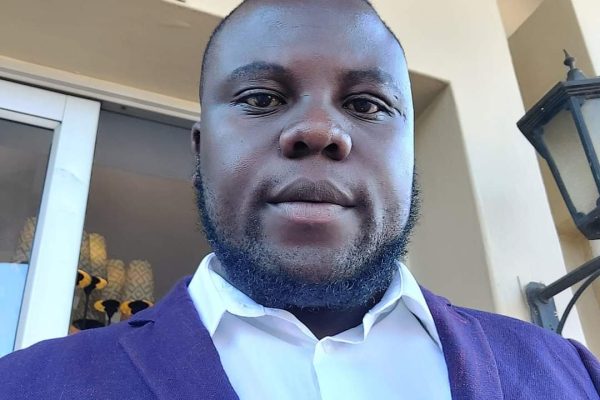
Ngone Mirimi is an accomplished development economist, researcher, and advocate for youth empowerment across Africa. He is currently a PhD candidate in Development Economics and serves as the Country Director for Future Africa International, a youth-led organization committed to advancing Climate Action, Entrepreneurship, and Leadership Development in alignment with the UN’s Sustainable Development Goals and the African Union’s Agenda 2063. Ngone’s extensive career encompasses roles in marketing, public relations, stakeholder engagement, and environmental sustainability across Southern Africa and the UK. He has worked in the Civil society, private sector and government including spearheading impactful projects, and youth-driven policy engagement on the African Continental Free Trade Area (AfCFTA). Ngone is also a member of the Independent Youth Advisory Council on AfCFTA, a contributor to the International Science Reserve House, and a proponent of ethical leadership through various fellowship programs. Dedicated to connecting economic policies with climate action and fostering Pan-African collaboration, Ngone leverages his academic expertise and practical experience to drive meaningful change in community development and governance.
Chipo P. Mungenge
Chipo P. Mungenge is a postdoctoral research fellow at the University of Cape Town’s African Climate and Development Initiative (ACDI). Her current research focuses on Ecosystem-Based Adaptation (EbA) in South Africa. With extensive experience in freshwater ecology and climate change adaptation, she is passionate about bridging the science-policy interface to ensure that research informs sustainable environmental practices and policies. Her work aims to enhance climate resilience and ecosystem services through innovative, evidence-based approaches. She has authored and co-authored several peer-reviewed journal articles and book chapters.
Franck Ronald Foadin

Franck Ronald Foadin is a PhD student in Management at the Louvain Research Institute for Management and Organizations (LouRIM) at the Catholic University of Louvain in Belgium. His dissertation project, titled “Cross-Cultural Pathways to Sustainability: The Social Constructions of Cleaner Technology Adoption in Belgian and Senegalese Households,” explores the international social dynamics that influence the behavioral transitions necessary for adopting sustainable technologies. This research aims to help mitigate the effects of climate change.
As part of his PhD studies, Mr. Foadin was awarded a $6,000 research grant from the Canadian federal government’s Mitacs Globalink Research Grant Program. He is completing a research internship at the Université de Moncton as part of the project “Behavioral Transitions in the Adoption of Sustainable Household Technologies,” within the Department of Administration at the Moncton campus.
Mr. Foadin holds an Executive Master’s Degree in Leadership from the Swiss University of Applied Sciences Institute in Geneva, Switzerland, as well as a Master’s Degree in Environmental Sciences and a Bachelor’s Degree in Environmental Education from the National Advanced School of Engineering (ENSPM) in Maroua, Cameroon.
He aims to become a key player in studying social transitions toward sustainability. He is committed to diversifying the dominant, often Western perspectives in this field to emphasize the contributions of initiatives from both developed and developing countries. Additionally, he seeks to raise awareness in the international scientific community about the need to decolonize knowledge regarding sustainable development.
Jones Osei Ebenezer
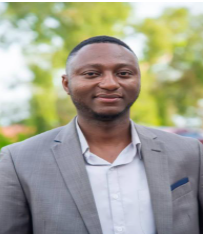
Jones, Osei Ebenezer is a seasoned professional with years of experience in developing, implementing, managing, monitoring, evaluating, and coordinating various developmental interventions and gender-related programs, with a strong background in social, educational, and agricultural development. He has worked with government, NGOs, and the private sector to strengthen demand and supply linkages, create enabling environments, and improve the living conditions of communities and vulnerable populations. With a robust educational foundation, including a Practical Proficiency Certificate in Agriculture, NACVET Certificate in General Agriculture, Diploma in Education, Bachelor of General Agricultural Science, MPhil Agriculture Extension, and Ph.D. in Agriculture Extension, Jones has established himself as an expert in his field. He serves 4-H Ghana as the Director of Programs. He has previously held roles such as Senior Research Associate for the Institute for Green Growth Solutions, Graduate Entrepreneur Programs Manager for Self Help International, National Project Coordinator of 4-Ghana, and Farm Technical and Commercial Advisor for Prepeez Company Ltd, Ghana. As an agricultural extension agent and advocate for Conservation Agriculture, Jones has extensive experience in farmer education, consultation, and incubation of agricultural and non-agricultural businesses. He has honed his skills as a prolific salesman for agribusiness industries. Additionally, his experience as a professional teacher, assistant headmaster, and Junior Registrar for Mfantseman Institute of Technology has equipped him with the ability to manage, train, facilitate community mobilization, and build capacity within the knowledge, skill, attitude, and aspiration domains of human development, making him a versatile and effective professional in his field.
GEOFFREY KIMOTHO
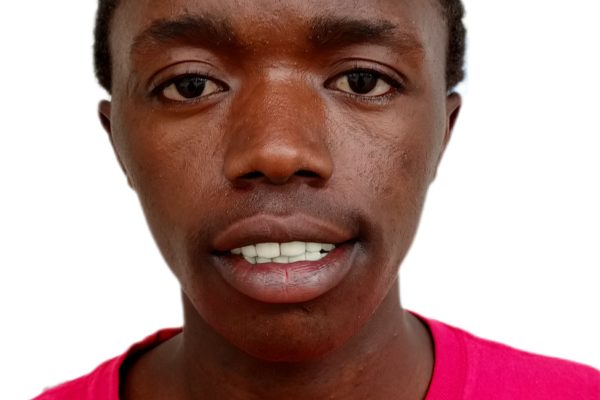
I am Geoffrey Kimotho, a dedicated climate researcher committed to addressing the challenges posed by climate change in rural East Africa. With a Bachelor’s degree in Social Work from Kenyatta University, I focus on climate adaptation, governance and sustainability.
Throughout my career, I have led several community-based research projects aimed at enhancing climate adaptation strategies. My work explores how rural communities can effectively respond to climate change impacts and engage in sustainable practices. I am passionate about researching the intersection of climate change, particularly in vulnerable areas to inform policies that promote accountability and long-term resilience.
In addition to conducting research, I have managed AU-funded projects that empower grassroots organizations with the knowledge and resources needed to address climate change. I facilitate capacity-building initiatives designed to equip communities with practical tools for climate adaptation, ensuring that their voices are heard in decision making processes.
My expertise in research, data analysis and project management enables me to contribute valuable insights into climate solutions that support vulnerable communities. I am committed to advancing climate justice by generating research that shapes effective policies and strategies for climate adaptation. My goal is to continue advocating for climate resilience and sustainable development, ensuring that marginalized communities are equipped to thrive despite the ongoing challenges posed by climate change.
Aschale Getnet Alemu
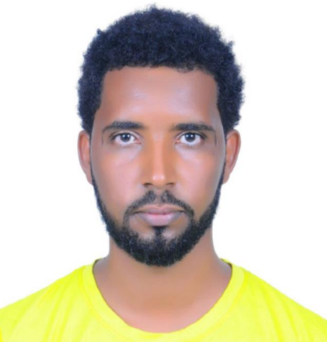
Aschale Getnet Alemu, born on June 2, 1993, in Ethiopia, is a dedicated mechanical engineer with a strong academic background and extensive experience in teaching, research, and community service. He is currently a lecturer at the Bahir Dar Institute of Technology, where he has been contributing to the field since June 2019. Previously, he served as an Assistant Lecturer from October 2016 to June 2019.
Aschale holds both a Master’s degree in Thermal Engineering and a Bachelor’s degree in Mechanical Engineering, both from Adama Science and Technology University, achieving impressive GPAs of 3.95/4 and 3.89/4, respectively. His academic excellence earned him the Rank Holder Award for both degrees, reflecting his commitment to his studies and his ability to grasp complex engineering concepts.
Fluent in English and Amharic, Aschale is proficient in various software tools, including Microsoft Office, MATLAB, and LaTeX. He has also gained additional training in computer maintenance and participated in workshops focused on entrepreneurship and intelligent machine learning.
Aschale is a passionate researcher, actively engaged in projects that explore renewable energy solutions. His work includes assessing solar energy potential in Bahir Dar City and evaluating innovative drying techniques for agricultural products. He has published several papers in reputable journals, showcasing his contributions to the field of energy engineering.
In addition to his teaching and research activities, Aschale is committed to community service, volunteering to teach design software and mentoring students in engineering principles. His dedication has been recognized with various awards, including the Bruh Ethiopia 2024 Innovative Business Idea Award and the BIC Ethiopia Project Sandbox Grant Award for his startup, Ahadu Solar Ice Maker, which focuses on preserving perishable agricultural produce.
Aschale’s professional journey is characterized by a strong motivation to drive positive change within his community and the broader field of engineering. He remains committed to furthering his education and expertise, with aspirations to contribute significantly to sustainable engineering solutions in Ethiopia and beyond.
Frank George Mgungwe
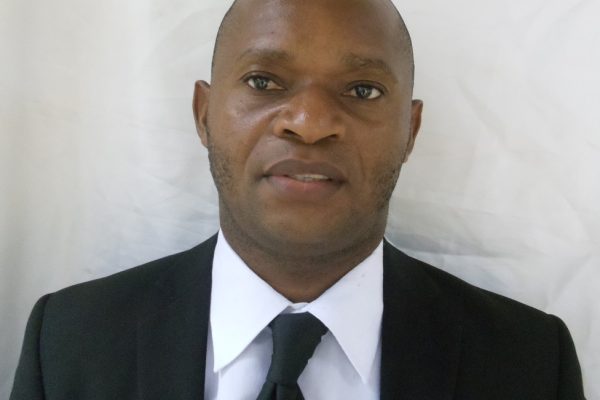
Frank George Mgungwe is a dedicated rural development practitioner and a Lecturer in Human Rights and Development studies at the University of Livingstonia, Malawi. He holds a Master of Laws (LLM) and a Postgraduate Certificate in Laws from the University of London (UCL, London), achieved under the Canon Collins Law Scholarship Scheme. Frank also holds a Master of Arts in Education from the University of Nottingham, earned through the Commonwealth Scholarship program, and a Bachelor of Education from Mzuzu University. As a change maker, his work focuses on human rights and transformative rural development, with a commitment to empowering marginalized communities. Currently, Frank is a doctoral research student in Transformative Community Development, at Mzuzu University, Malawi.
Moses Mutua Mutiso
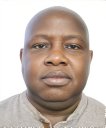
I am a seasoned academic and researcher with over 17 years of experience in higher education and more than 20 years in conducting empirical studies. Holding a PhD in Sociology, I currently serve as a Lecturer in the Department of Sociology, Psychology, and Anthropology at Moi University. My work primarily focuses on understanding climate change and its intersections with gender dynamics, social justice, and sustainable development.
I have developed customized research methodologies that integrate gender-sensitive frameworks and participatory approaches to address complex social issues. My research portfolio includes studies that examine the impacts of climate variability on vulnerable communities, as well as investigations into how environmental challenges influence family cohesion and urban resilience. Notably, I have been actively involved in research that explores the multifaceted effects of climate change, from influencing livelihood patterns to impacting community health and food security.
In addition to my academic pursuits, I bring substantial expertise in monitoring and evaluation (M&E), data quality assurance, and stakeholder engagement. I have successfully managed interdisciplinary projects and mentored teams to apply innovative solutions in both academic and community contexts. Through my work, I strive to bridge the gap between rigorous academic research and actionable policy recommendations that promote accountability and sustainable climate adaptation.
I am eager to leverage my extensive experience and commitment to social equity to drive positive change and advance understanding of climate change impacts on marginalized communities.
BRIGHTON MOYO
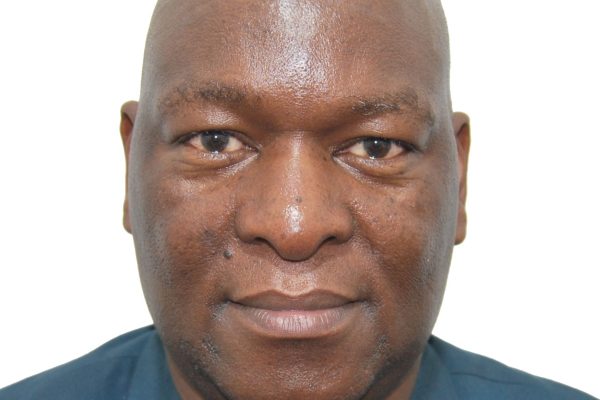
BRIGHTON MOYO
ESG and Safety Specialist | Sustainability & Climate change Advocate | Project Leader
Professional Summary
With 17 years of experience, my career has been driven by a passion for promoting sustainable practices, mitigating climate change, and fostering community engagement. I have successfully led numerous environmental and health, safety, and environmental quality projects across diverse industries, delivering measurable outcomes. Through strategic collaboration with stakeholders, regulatory authorities, and communities, I have designed and executed programs that align global environmental standards with organizational goals. My technical expertise and commitment to advocacy have earned recognition, including the Cleanup Campaign Trophy and multiple ISO certifications.
Key Achievements
∙ Conducted over two comprehensive EIAs in partnership with EMA, ensuring full compliance with global environmental standards.
∙ Trained and mentored 300+ employees and community members on sustainable practices, achieving 100% engagement.
∙ Spearheaded awareness campaigns that reached over 1,000 artisanal miners, educating them on the environmental effects of mercury and cyanide, safe mining methods and land rehabilitation. ∙ Advocated for climate action through community outreach and digital platforms, influencing local and global audiences.
∙ Championed initiatives that earned recognition, such as a Clean-up Campaign Trophy, reflecting my commitment to innovative environmental practices and community engagement.
Core Skills
∙ Environmental Impact Assessments (EIA)
∙ Waste Management and Land Rehabilitation
∙ Behaviour coaching and mentoring
∙ Policy Advocacy and Stakeholder Collaboration
∙ Climate Change Mitigation Strategies
∙ Data analysis
∙ Interviewing
∙ Research
∙ Training and Capacity Development
Education
∙ Diploma in Construction Safety – Alison Institute, Ireland, 2022
∙ Diploma in Project Management – Alison Institute, Ireland, 2019
∙ Diploma in Health and Safety – Brighton School of Business and Management, UK, 2008 ∙ BSc in Geography and Environmental Studies – Zimbabwe Open University, 2007 ∙ Diploma in Training Management – IPMZ, Zimbabwe, 2006
Certifications
∙ Introduction to Sustainable Finance for Climate and Energy – UNDP, 2024
∙ ISO 14001:2015 EMS Awareness – Knights Safety Academy, 2022
∙ Monitoring, Evaluation, Accountability, and Learning – Humanitarian Leadership Academy, 2021 ∙ Social and Behaviour Change Program Monitoring – Global Health Learning Center, 2017 Key Projects
∙ Zimplats Power Expansion (330KV & 132KV) – May 2023 to Sept 2024
∙ Mimosa Plant Optimization – March 2022 to April 2023
∙ KNTB-USAID Funded Project – May 2018 to Feb 2022
Research Project
∙ Medical Waste Management Practices at Gweru Provincial Hospital – 2007
Research Project interests
∙ Climate change adaptation
∙ Community based Indigenous Knowledge Systems
Professional Impact
I am passionate about bridging the gap between policy and practice to create a sustainable future. By leveraging my technical expertise, leadership skills, and commitment to education, I strive to develop systems that protect the environment while fostering economic and social resilience.
Muluberhan Biedemariam
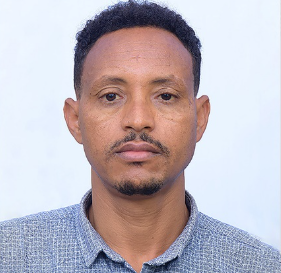
Muluberhan Biedemariam is a lecturer at Aksum University, Ethiopia. Currently, he is a PhD student in Dryland Ecology and Resources Management at Mekelle University, Ethiopia. He is interested in nature-based solutions, green infrastructures connectivity, land use/cover analysis, landscape dynamics and analysis, urban and spatial analysis, ecosystem services valuation, environmental impact assessment, climate change mitigation and adaptation, natural resources management, community engagement and accountability. Muluberhan is experienced in environmental entrepreneurship program for youth and landless women.
Marisellah Moraa Okioma
I’m a Kenyan Development Professional passionate about agriculture, food systems and livelihoods; and highly experienced in strategic management, research; and in designing, planning and implementation of development projects.
I hold a Master of Arts Degree in Development Studies, from the University of Nairobi, Kenya; a Bachelor of Arts Degree in Social Sciences, (Political Science and Sociology), from the Catholic University of Eastern Africa (CUEA), Kenya; and currently pursuing a PhD in Development Studies at Kisii University, Kenya.
I’m zealous about enhancing positive transformation of food systems and livelihoods among communities in Africa, with research and academic interests in climate change, agriculture and food security.
In my current role as a Senior Project Development Manager at Easytech Farm Solutions Limited, a leading agri-tech SME since 2021, I have championed the adoption of climate smart agricultural innovations; by working directly with farmers and community groups for improving food security, and successfully collaborated with Organizations such as CGIAR, International Food Policy Research Institute (IFPRI) and other local agencies and governments in agricultural programmatic work in Kenya, Uganda, Tanzania, Rwanda and Burkina Faso. Additionally, I have attended conferences and presented papers touching on these areas including publication of 3 Book Chapters on climate change, agriculture and food security.
Previously I worked with a Development Organization, Swiss League of Catholic Women for 7 years, as a Development Advisor and Consultant and as a University Lecturer for 8 years cumulatively, at Catholic University of Eastern Africa, Kisii University and at Marist International University College.
My main skills include Research, Fundraising, Community development, Project management, Monitoring and Evaluation and Report writing.
Out of work, I enjoy travelling and meeting new people and learning new languages and cultures. I currently speak, English, Italian, Kiswahili, basic French and 5 local dialects in Kenya.
I’m currently in Nairobi, Kenya and can be reached on following channels:
Franklin Pyokpung Zaure
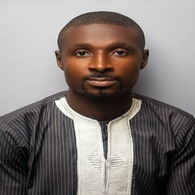
Franklin Pyokpung Zaure for the past six years, lectures in Theatre and Performing Arts department, Ahmadu Bello University, Nigeria with a research focus on performance design and environmental sustainability. He has four years’ experience teaching cultural and creative arts to children between the ages of three to fifteen at the primary and secondary education levels. He is a Fellow, Fulbright Visiting Research; Rise-Up Leadership Accelerator Program; https://riseuptogether.org/franklin-pyokpung-zaure/ He is a transdisciplinary researcher/artist, development communicator, an advocate for environmental justice, a climate change advocate and the founder of the Creative Arts for Development Center, a grassroot organization that leverages on creativity for social change.
Dr. Kwaku Adu
Dr. Kwaku Adu is an accomplished academic and researcher specializing in environmental economics, sustainable development, and climate-smart agriculture. Born on June 3, 1981, in New Tafo-Akyem, Ghana, he holds a Ph.D. in Global Environmental Studies from Sophia University in Tokyo, Japan, and a diverse academic background encompassing economics, global development, and sustainability science.
Dr. Adu’s career spans academia and public service. He currently serves as a lecturer at the University of Environment and Sustainable Development in Ghana, where he contributes to the Department of Applied Economics. With a strong commitment to advancing knowledge and practical solutions, he has developed frameworks such as the Multidimensional Environmental Well-Being Framework and the Agricultural and Extension Education for Sustainability Approach. These initiatives address critical issues in environmental sustainability, socioeconomic well-being, and poverty alleviation.
His research portfolio is extensive, featuring publications in high-impact journals and projects funded by notable organizations, including the IDRC and the Korean Safety Health Foundation. Dr. Adu’s work emphasizes climate-smart agriculture, multidimensional poverty analysis, and environmental education. His expertise has been recognized with scholarships and awards, including the Sophia University Tuition Reduction Scholarship and the Ghana-Cuba Government Scholarship.
Dr. Adu is a dynamic contributor to academic and professional communities, holding memberships in esteemed organizations such as the African Finance and Economic Association, Association of Environmental and Resource Economists and the Japan Association of African Studies. He has also participated in international conferences, sharing insights on sustainable development and environmental management.
Fluent in Twi, English, and Spanish, with a working knowledge of Italian, Dr. Adu embodies a global perspective in his teaching, research, and community engagement. His dedication to fostering innovation and sustainability continues to inspire colleagues, students, and collaborators worldwide.
Sani Saidu Muhammad
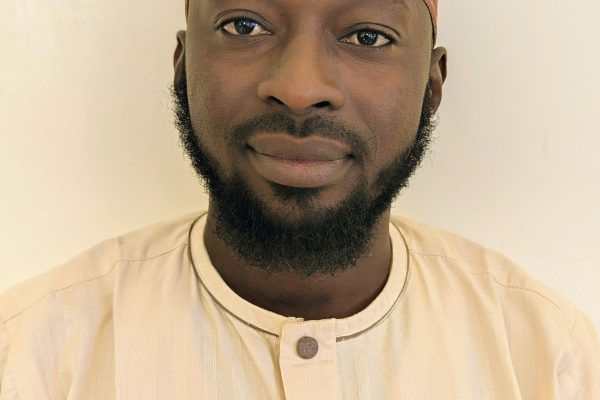
Sani Saidu Muhammad is a distinguished program and research professional with over five years of impactful experience in governance, health, and climate resilience initiatives across Nigeria. He has led multi-sectoral projects that enhanced civic participation by 30% and piloted innovative climate adaptation strategies benefiting more than 5,000 individuals.
Sani holds an MBA from Ahmadu Bello University, Zaria, and is an Associate Member of the Chartered Institute of Personnel Management (ACIPM). His expertise spans data analysis, stakeholder engagement, capacity building, and evidence-based decision-making. He has conducted high-impact research on accountability dimensions in climate adaptation, gender-based violence, and governance, consistently delivering actionable insights to inform policy and practice.
In addition to his professional work, Sani is a passionate freelance journalist, leveraging his storytelling skills to amplify community voices and raise awareness on critical socio-political and environmental issues. His journalistic contributions have highlighted underreported challenges and driven advocacy for impactful solutions.
Sani’s leadership has been instrumental in initiatives such as integrating climate education into school curricula, empowering youth for environmental advocacy, and implementing community-driven solutions for climate resilience. He has contributed to the development of drought-resistant agricultural practices and water conservation strategies in underserved communities, demonstrating a profound commitment to sustainable development and inclusivity.
An advocate for equitable climate solutions, Sani is dedicated to engaging marginalized groups, including women, youth, and persons with disabilities, in decision-making processes. His diverse expertise and dedication to transformative change position him as a key contributor to advancing climate adaptation and accountability in Africa.
Chris Miyinzi Mwungu
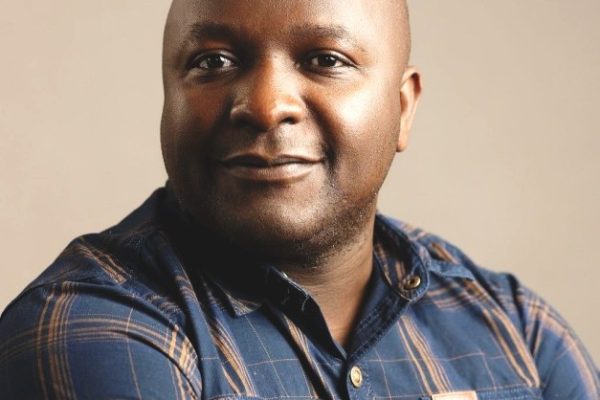
Ednah Dindi
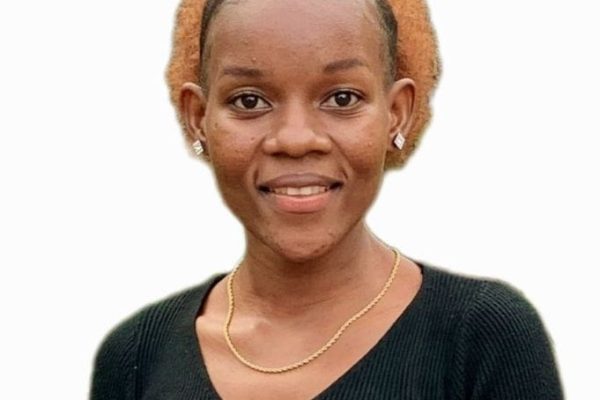
Ednah Dindi is a geospatial analyst driven by a passion for understanding and mitigating the impacts of climate change. With a diverse background encompassing agriculture, business analysis, natural resource management, and public health, Ednah leverages cutting-edge technologies such as Geographic Information Systems (GIS), Artificial Intelligence (AI), and remote sensing to develop sustainable solutions.
Her current work explores the complex interrelationship between climate change and food production, examining how changes in the environment affect the availability of resources and, ultimately, human health. Ednah wants to use her work to offer data-driven insights that help guide the creation and application of practices and policies that are climate resilient. Ednah works to promote a more sustainable and just society, with an emphasis on raising agricultural output and boosting public health in communities that are at risk.
Nuwahereza Nelson
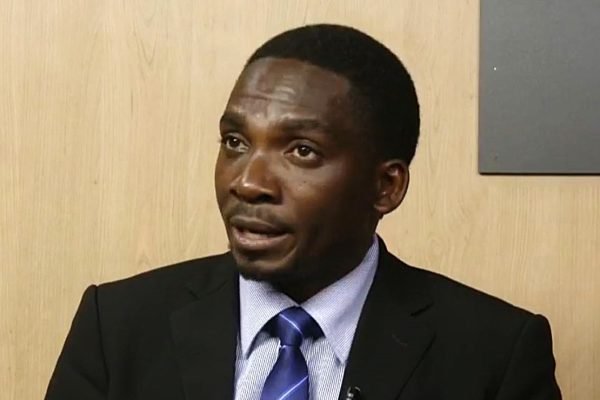
Nuwahereza Nelson, is Ph.D. candidate at the Centre for Environmental Management and Control, University of Nigeria, Nsukka. He is the recipient of Homegrown Clean Energy (HCE) Solutions Intra-Africa Mobility Scholarship. His research focuses on Household cooking decarbonization and energy security, particularly exploring adoption of clean cooking bioenergy technologies and wasteland potential for bioenergy crop production and their potential contributions to national climate goals. His academic foundation includes a Master’s degree in Forestry and Biodiversity Management and a Bachelor’s degree in Conservation Forestry and Production Technology, both obtained from Makerere University. He has also earned certifications from the UN REDD+ Academy and a collaborative program in Plant Conservation conducted by Oslo University and Makerere University.
Nelosn has over nine years of professional experience in forestry governance, REDD+ and carbon market. Before, going back to school Nelson worked as a Forest Officer at Uganda’s Ministry of Water and Environment, in forestry sector support department where he has been an integral part of the National REDD+ Secretariat since August 2021. In this capacity, he has engaged with stakeholders in REDD+ projects, contributed to the development of subnational REDD+ idea notes, and assessed project proposals. His efforts have extended to monitoring safeguards compliance and playing a pivotal role in registering Uganda’s REDD+ program under ART-TREES, with a focus on safeguards monitoring and reporting. In 2023, Nelson co-coordinated the development of Uganda’s International Carbon Market Regulations and Implementation Guidelines mainly through soliciting REDD+ stakeholders’ input. He also participated in ecosystem based adaption and forest landscape restoration projects development and implementation, forestry sector policy and regulation formulation and reviews and collaborative forest management monitoring in Uganda. Beyond his work with government of Uganda, Nelson founded and served as Executive Director of the Safe Space Network from March 2019 to October 2024. Under his leadership, the organization empowered youth and local communities to champion sustainable and inclusive development. His advocacy extended to politics, where he contested as a parliamentary candidate for Ruhinda North Constituency in the 2021 Uganda elections. Earlier in his career, he served as Program Manager for Universal Love Alliance, writing grants proposals and overseeing educational workshops on human rights.
Mwewa Timothy
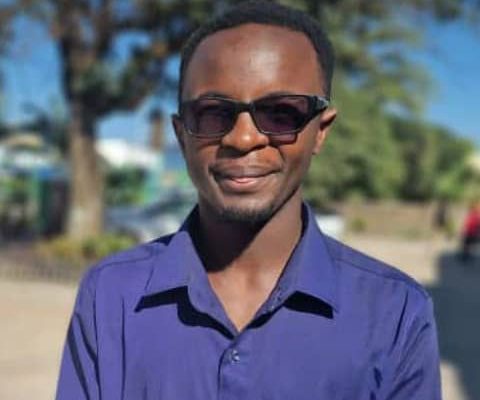
Mwewa Timothy is a Young technocrat, environmentalist, and author known for his groundbreaking contributions to the realms of innovation and sustainability. With an unwavering passion for harnessing technology to drive sustainable development and improve the human condition, Mwewa has carved a distinctive niche for himself as a visionary thought leader and change agent.
Throughout his academic journey, Mwewa has consistently demonstrated exceptional aptitude and enthusiasm for learning, earning him numerous accolades and recognition. His current pursuit of a Bachelor’s degree in Environment and Climate Change (final year) is a testament to his commitment to deepening his understanding of the intricate relationships between human societies and the natural environment. As a prolific author, Mwewa’s literary endeavors have been met with critical acclaim and recognition. His seminal book, “At The Edge of Technology,” has been acknowledged by the Zambian government, underscoring his thought leadership and expertise in the field of technology and innovation. This milestone not only highlights Mwewa’s ability to communicate complex ideas effectively but also demonstrates his dedication to sharing knowledge and inspiring others.
As a technocrat, Mwewa has been at the forefront of leveraging technology to drive innovation, entrepreneurship, and sustainable development. His startup, Young Minds, is a paradigmatic example of his vision for empowering young people to become active participants in the technological revolution. Through Young Minds, Mwewa has provided a platform for young people to develop their skills in technology and innovation, thereby enhancing their employability and contributing to the growth of the digital economy.
Mwewa Timothy as pioneered a review in blockchain technology with notable experts from Ethiopia and India which has led to the facilitation of a research paper on the application of blockchain in enhancing the agriculture supply chain. This research has far-reaching implications for improving the efficiency, transparency, and sustainability of agricultural systems, particularly in Africa. By exploring the potential of blockchain technology in agriculture, Mwewa has demonstrated his commitment to using technology to drive sustainable development and improve the lives of people in Africa.
Mwewa’s commitment to environmentalism and sustainability is evident in his academic pursuits and literary works. As an environmentalist, he recognizes the intricate relationships between
human societies and the natural environment and is dedicated to developing innovative solutions to pressing environmental challenges. His participation in various environmental initiatives and forums has not only deepened his understanding of the complex issues surrounding sustainability but also equipped him with the knowledge and skills necessary to develop effective strategies for mitigating the impacts of climate change, environmental degradation, and pollution.
Mwewa’s academic and professional pursuits have been complemented by various certifications and specializations. Notably, he has completed the Climate Law and Governance Specialization Cohort-2022, which has equipped him with a deep understanding of the legal and governance frameworks surrounding climate change. Additionally, Mwewa has completed certifications in Sustainable Development and the Law, as well as Economics of Money and Banking. These certifications have not only broadened his knowledge base but also enhanced his ability to analyze complex issues and develop effective solutions.
As a keynote speaker, Mwewa has shared his insights and expertise with diverse audiences, inspiring and motivating them to become active participants in the technological revolution and sustainability movement. His exceptional communication skills, coupled with his passion for innovation and sustainability, have made him a sought-after speaker locally. Through his public engagements, Mwewa has been able to convey the importance of technology, innovation, and sustainability in driving human progress and improving the quality of life for people around the world.
Mwewa’s commitment to Pan-Africanism is evident in his writings and public engagements. As a Pan-Africanist, he recognizes the importance of African unity, self-determination, and empowerment in shaping the continent’s future. Mwewa’s work is informed by a deep understanding of the complex issues surrounding Africa’s development, which has equipped him with the knowledge and skills necessary to develop effective strategies for promoting sustainable development and economic growth in Africa.
Mwewa’s expertise in political and economic analysis has also led to his participation in various forums and initiatives, including the Zambia National Budget Review and Recommendation. This experience has not only deepened his understanding of the complex issues surrounding economic development and governance but also equipped him with the knowledge and skills necessary to develop effective strategies for promoting economic growth and development in Africa.
Throughout his journey, Mwewa has demonstrated exceptional leadership, vision, and commitment to driving positive change in Africa and beyond. His work serves as a testament to the power of innovation, sustainability, and Pan-Africanism in shaping a brighter future for all. As a devoted polymath, Mwewa continues to inspire and motivate others to join him in his quest to harness technology, innovation, and sustainability to drive human progress and improve the quality of life for people around the world.
Dr. Ferede Abuye Jeldu
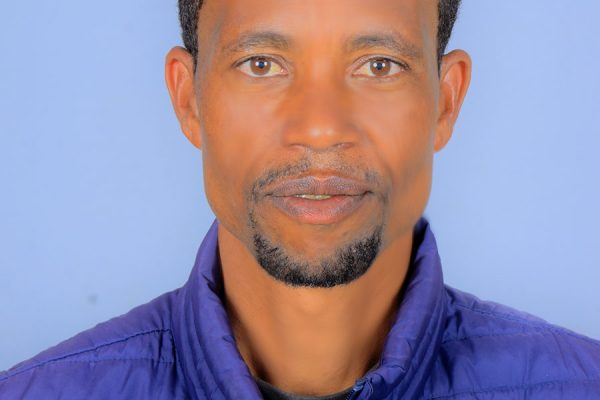
Dr. Ferede Abuye Jeldu is a distinguished researcher and academic with a profound passion for climate change, bioenergy development, and forestry. Holding a PhD in Climate Change and Bioenergy Development from Hawassa University, a Master’s degree in Environmental Science from Ambo University, and a Bachelor’s degree in Forest Management and Utilization from Hawassa University, Dr. Ferede’s academic background is as impressive as it is diverse.
With a wealth of professional experience in academia, research, and practical forestry roles, Dr. Ferede has cemented his reputation as a leading expert in the field. As a lecturer and head of the Department of Forestry at Mettu University and Assosa University, he has shared his expertise with the next generation of environmental scientists. Dr. Ferede’s commitment to environmental education is evident in his leadership of training programs for experts and local farmers on climate variability and environmental impact assessment.
Supported by prestigious fellowships and grants, including the IPCC 6th Round Scholarships Programme Award and the African Forest Forum (AFF) Research Fellowship fund, Dr. Ferede is dedicated to advancing knowledge in climate change and sustainable forestry. He also received a Certificate of service from African Forest Forum (AFF) in Nairobi, Kenya for participating in a workshop on forest and tree-based ecosystem services for socio-ecological resilience to climate change in Africa, as well as completing a training course on technical writing and publishing scientific papers organized by Sokoine University of Agriculture in partnership with AFF. His expertise in collecting and analyzing environmental data, conducting forest inventory assessments, and utilizing statistical software showcases his technical acumen in the field. Dr. Ferede’s research contributions, publications, and training initiatives underscore his commitment to creating a greener, more sustainable future for generations to come.
Tizgowere Msiska
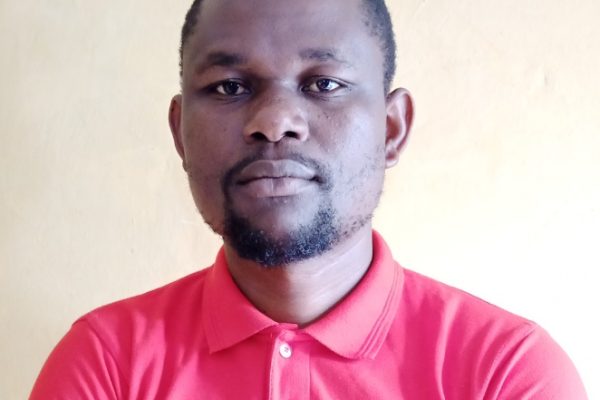
Tizgowere Msiska is a Malawian early-career researcher in governance, peacebuilding, gender and women empowerment, climate and policy, and informal sector. He was born on the 6th of October 1987. His professional research career started when he joined a local non-governmental organization known as Revolution Human Aid and Transparency Initiative (REHAAT) in 2015 as a volunteer Projects Coordinator. He is the current leader of the same organization. He has keen interest in integrating research with policy. He is a human rights activist and researcher. He holds a bachelor’s degree in Public Administration from University of Malawi. He has also attained a Master of Business Administration qualification from Amity University Online.
He has so far co-authored two research papers with the following titles; ‘How Gender Norms Contribute to Gender-based Violence in the workplace in Malawi’ published in 2021, and ‘Resolving Tax Disputes: Market Vendors and Councils in Malawi’ published in 2024.
Dr. Pamela R.N. Kaithuru
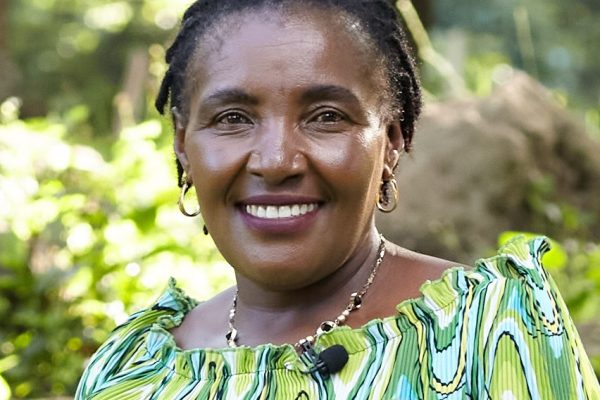
Dr. Pamela Kaithur, Registered Psychologist, is the President International Society of Substance Use Prevention and Treatment Professionals (ISSUP Kenya Chapter), meteorological staff at the Kenya Meteorological Department, Instructor and reseacher at the Institute for Meteorological Training and Research – World Meteorological Organization Regional Training Centre (IMTR-WMO RTC Nairobi-Kenya) for English-speaking Africa, Supervisor for International Peace Support Training Centre Post Graduate School, Counsulting Psychologist for African Coalition of Communities Responsive to Climate Change (ACCRCC), a member of the EA Anticipatory Action Working Group on climate change and member International Coalition of Climate Action in Prevention Science( ICCAPS) . She is a Mental Health professional, an Internationally Certified Addiction Professional, author, trainer, researcher with over 20 years of experience in the Workplace in the area of HIV mainstreaming, Alcohol and Drug abuse prevention, mental health, psychological wellness and climate change. She is a trained addiction counselor, supervisor and Trainer of Trainers. Dr. Pamela is a social influencer and Champion in mental health, climate change and drug abuse prevention. She has experience in the public workplace, Policy development, program development and implementation. She holds a Doctoral Degree in Counseling Psychology from the Catholic University of Eastern Africa, Masters from Mount Kenya University and a Diploma in Addiction Counseling and Treatment from Support for Addiction Prevention and Treatment in Africa.
Kindineh Sisay Melaku
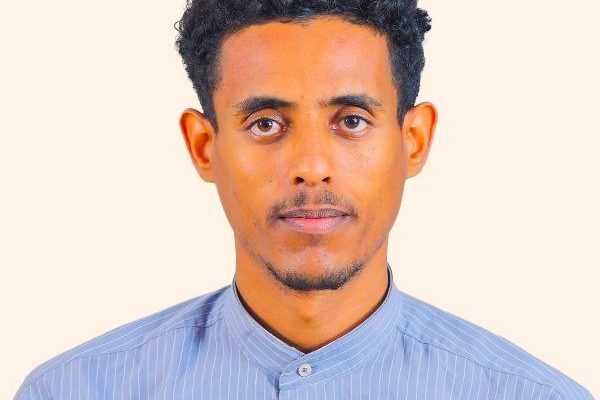
Kindineh Sisay Melaku is a Lecturer and Researcher at Haramaya University, Ethiopia, with a strong focus on agricultural economics, climate adaptation, and sustainable development.He holds an MSc in Agricultural and Applied Economics, earned through a joint program between Haramaya University and the University of Pretoria, and a BSc in Agribusiness and Value Chain Management, both completed with very great distinction. He has taught several courses for Agricultural Economics and Agribusiness students, and supervised several undergraduate researches. He also managed to publish several articles in articulated peer-reviewed journals, including those published by well-known brand publishers such as
Elsevier, Taylor & Francis, and Wiley.
His research encompasses impact evaluation, productivity, climate change adaptation and resilience, sustainability, agricultural policy, food and nutrition security, natural resource valuation, and sustainable agricultural practices, utilizing advanced econometric modelling techniques. As a principal investigator in multiple projects, Kindineh has led impactful studies addressing productivity, climate adaptation, and food security challenges in Ethiopia. His findings have been widely disseminated through publications in high-ranking international journals and presentations at global conferences.
A dedicated mentor and educator, Kindineh is passionate about interdisciplinary collaboration and bridging the gap between research and policy to address pressing global challenges. His work continues to contribute to sustainable development and resilience-building initiatives across Africa.
Dr. Peter M. Eze
Dr. Peter M. Eze is a Fellow at ARIN. He holds a PhD in Pharmaceutical Microbiology and Biotechnology and is currently a Senior Lecturer in the Department of Environmental Health Science at Nnamdi Azikiwe University, Nigeria.
Dr. Eze has over ten years of professional research experience in diverse fields of microbiology, pharmacology, and natural products drug discovery. His current research focuses on “implementing sustainable methodologies for improving the health of humans, animals, and the environment.” Dr. Eze’s research findings in these fields have been published in reputable scientific journals and presented at several conferences.
Dr. Eze’s work has earned him several honours and awards, including the AREF-EDCTP Joint Preparatory Fellowship Award, the International Foundation for Science (IFS) Research Grant, and international postdoctoral fellowships in Germany and the United Kingdom. His long-term goal is to make significant advances in his current research area while also training and mentoring the next generation of scientists.
Dr. Eze is open to scientific collaboration, particularly with the goal of improving global health and well-being.
EMMANUEL GICHURU
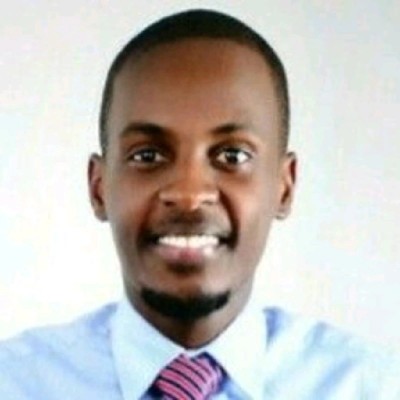
Emmanuel Gichuru, born in August 1994 in Nakuru, Kenya, is a visionary leader and entrepreneur renowned for his notable contributions to Environmental Resource Management, technology and sustainable development. Raised in a modest neighborhood in Nakuru, Emmanuel’s early passion for environmental conservation was fostered by his parents, both educators, who emphasized the importance of education and hard work. Guided by insatiable curiosity and determination, Emmanuel’s formative years laid the foundation for his subsequent endeavors in becoming a leader at the intersection of environmental stewardship and technological innovation.
Academic Pursuits:
Emmanuel excelled academically, earning a bachelor of Technology in Environmental Resource Management at The Technical University of Kenya and a Masters of Environmental Studies in Climate Change and Sustainability from Kenyatta University. During his time in university, he demonstrated exceptional leadership skills and a keen interest in harnessing technology for environmental betterment.
Entrepreneurial Ventures:
After completing his education, Emmanuel Is the Founder of BMB Eco-Group, an Environmental Consultancy firm in Nairobi Kenya, a startup focused on developing innovative solutions for the environmental sector. His company’s flagship products and services include Environmental Research, Environmental Education and Awareness, Environmental and Social Impact Assessment reporting, Ecosystem Restoration, Sustainability Reporting and Environmental resource management.
Environmental and Social Impact:
Emmanuel’s commitment to environmental and social responsibility led him to initiate various environmental projects aimed at promoting education and climate action amongst youth and communities this includes the CIFOR-ICRAF Regreening Africa Project in developing the Youth Engagement Strategy and the UNEP Pro-environmental Youth engagement toolkit. His organization BMB Eco-Group is dedicated to empowering youth through education and skill development.
Global Recognition:
Emmanuel Gichuru’s achievements did not go unnoticed on the global stage. He became a sought-after speaker at international conferences, sharing his insights on the intersection of technology, sustainability and social impact. His research paper :”Climate change education for Primary schools in Kenya” got recognised in the 12th World Environmental Education Congress in Abu Dhabi, United Arab Emirates.
Dr Duke Oeba
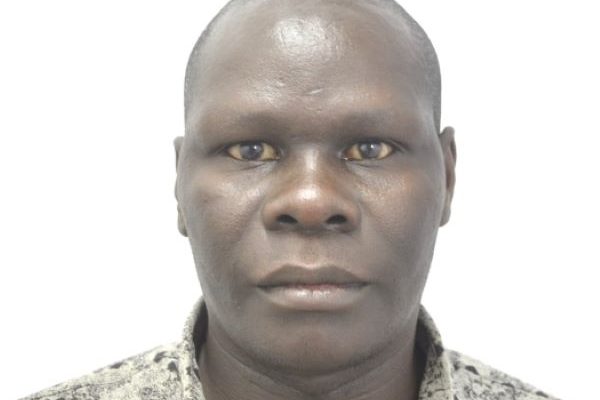
Dr Duke Oeba hold BSc (Education), MSc (Electronics) and PhD (Physics) from Egerton University, Kenyatta University and University of South Africa, respectively. Dr Oeba is a researcher and lecturer at the Department of Physics, Egerton University. His research is dedicated to investigating the properties of novel materials for applications in next-generation renewable energy, net-zero carbon footprints, climate change adaptation, and mitigation. Dr Oeba has authored multiple scholarly articles in his field of expertise, and presented at several international conferences/ workshops and won awards and research grants.
Beyond academia, Dr Oeba is the co-founder and Executive Director of a UV-LED water project aimed at assisting marginalized communities. Additionally, he serves as the Principal Investigator for a UNESCO-TWAS funded project exploring novel materials for renewable energy applications.
Dr Oeba is the distinguished overall winner of the 1st SEGATE-COMPASS AI/ML Challenge Competition (2024) organized by SEGATE Technologies and the University of Michigan. By winning this challenge, he was awarded cash money and consequently appoint Research Scholar at the University of Michigan. Dr Oeba is a (i) PI of the Seed Grant for New African Principal Investigators (SG-NAPI) from UNESCO-TWAS (2023-2025) (ii) co-PI of the Alliance International Grant (ALLRP) by Natural Sciences and Engineering Research Council of Canada (2024-2025), (iii) a PI of (Per Month per Visit) Center for Complex Particle Systems (COMPASS), University of Michigan (2024-2025), (iv) co-PI of the COMPASS Junior Scientists Board research challenge (2024-2025) and (v) was previously supported by a scholarship from the National Research Foundation of South Africa (2018-2021).
Dr Oeba has many leadership responsibilities at the departmental and institutional levels. He is the Chairman of the Departmental Postgraduate Committee, Vice Chairman of the Curriculum Review Committee for Bachelor of Science Physics Programmes, Faculty Committee Member, Board of Postgraduate Studies, IEEE P2520.1 Working Group Member, Co-Guest Editor in Special Issue in International Journals of Thin Film Science and Technology and Quality and Standard Faculty Board Member., Egerton University.


